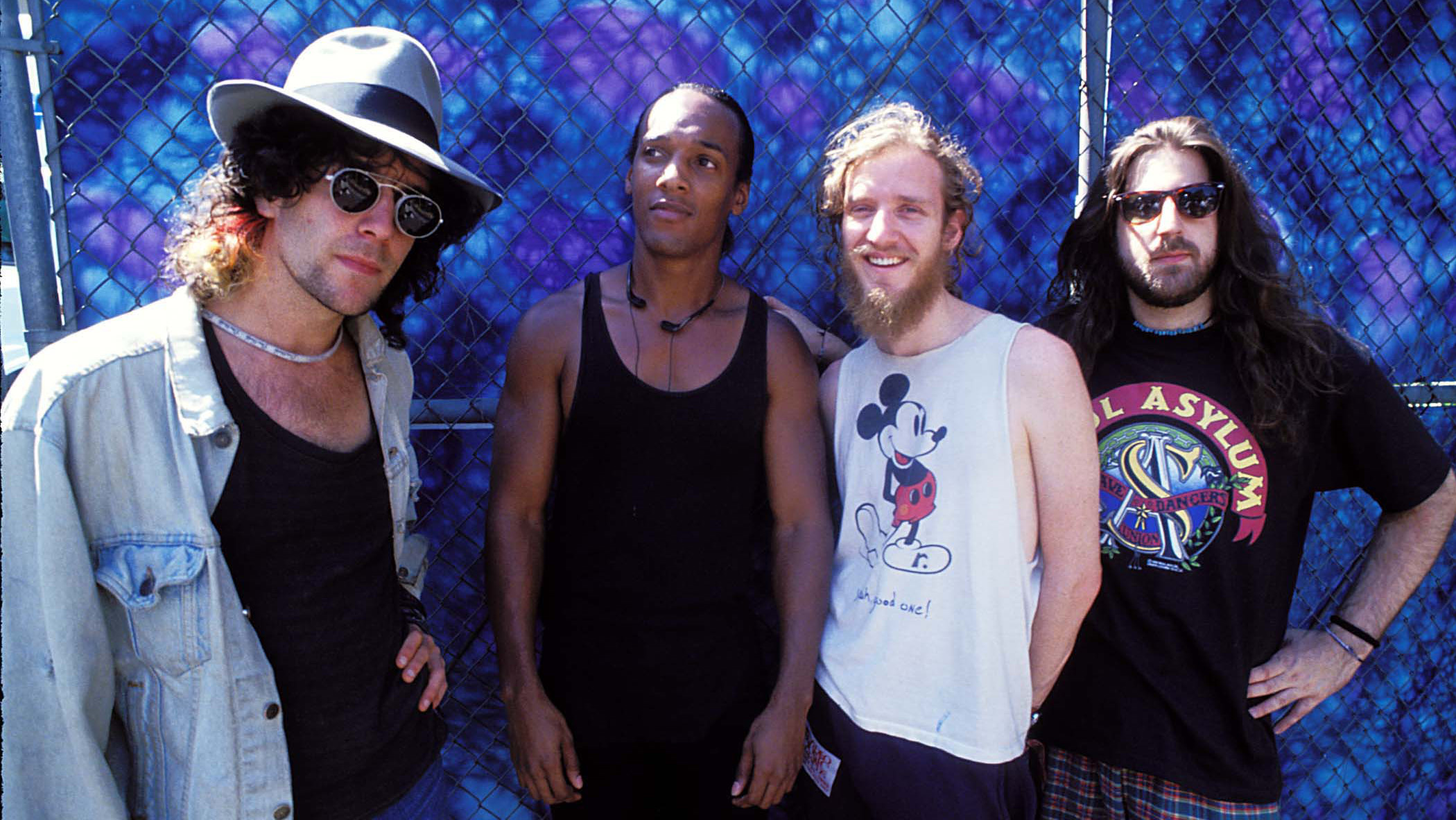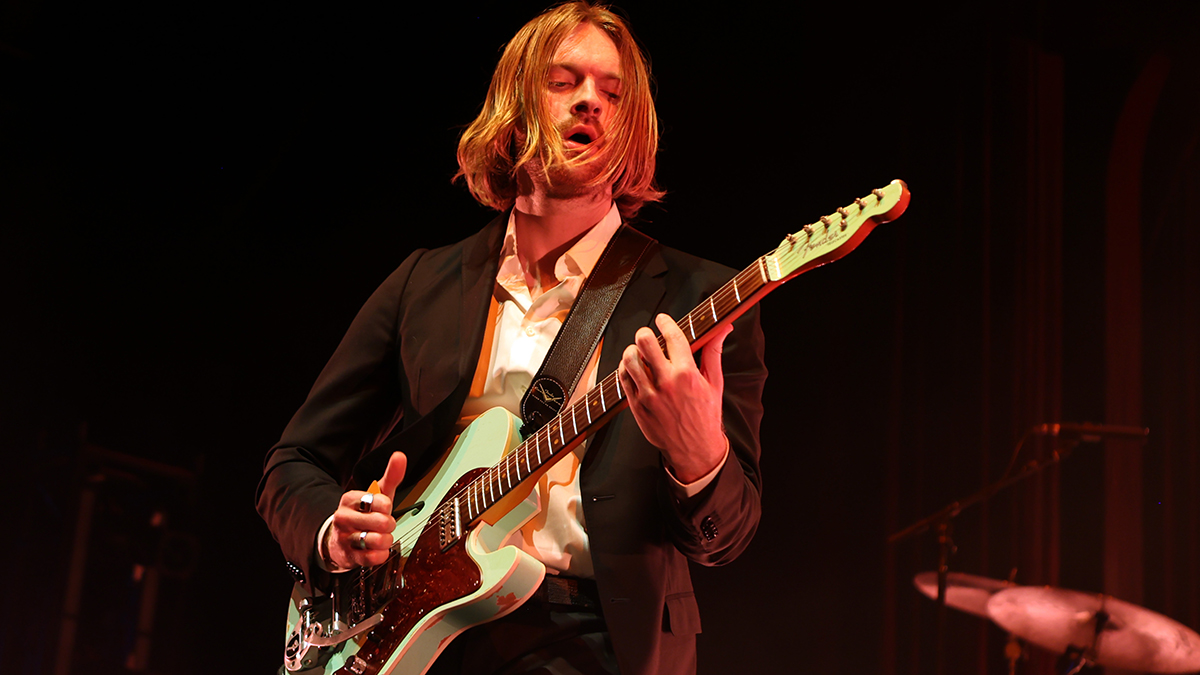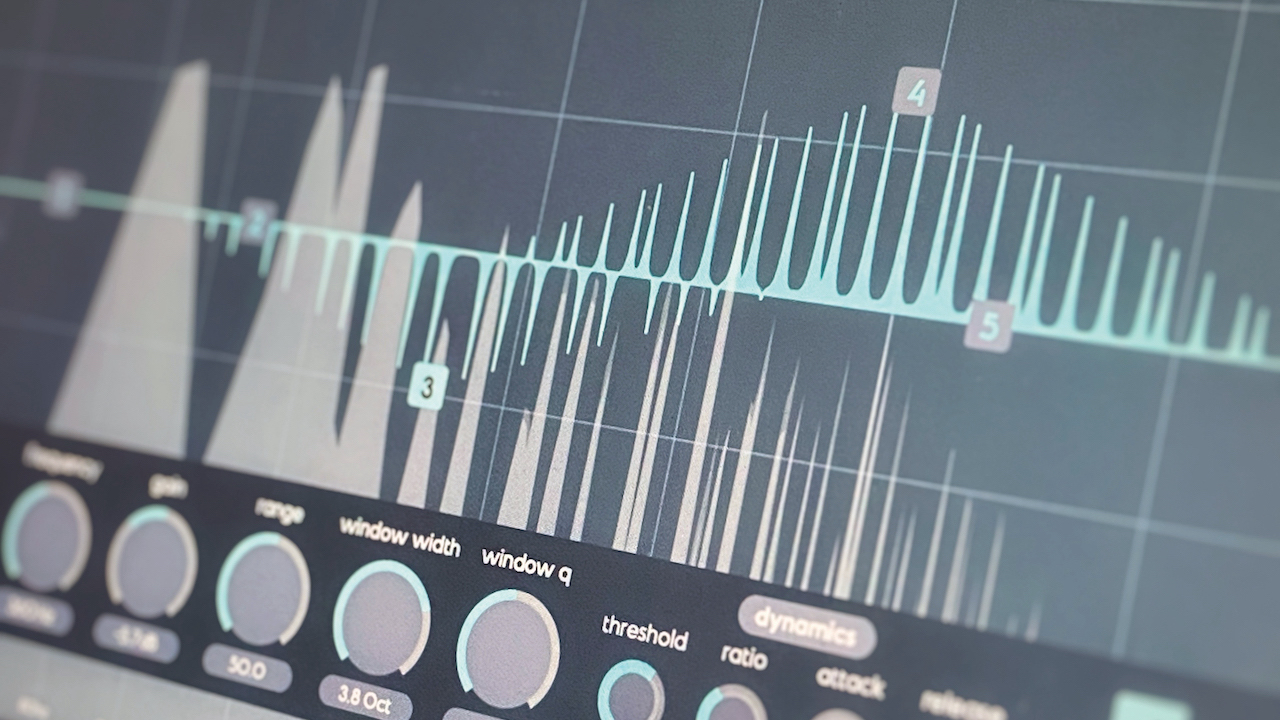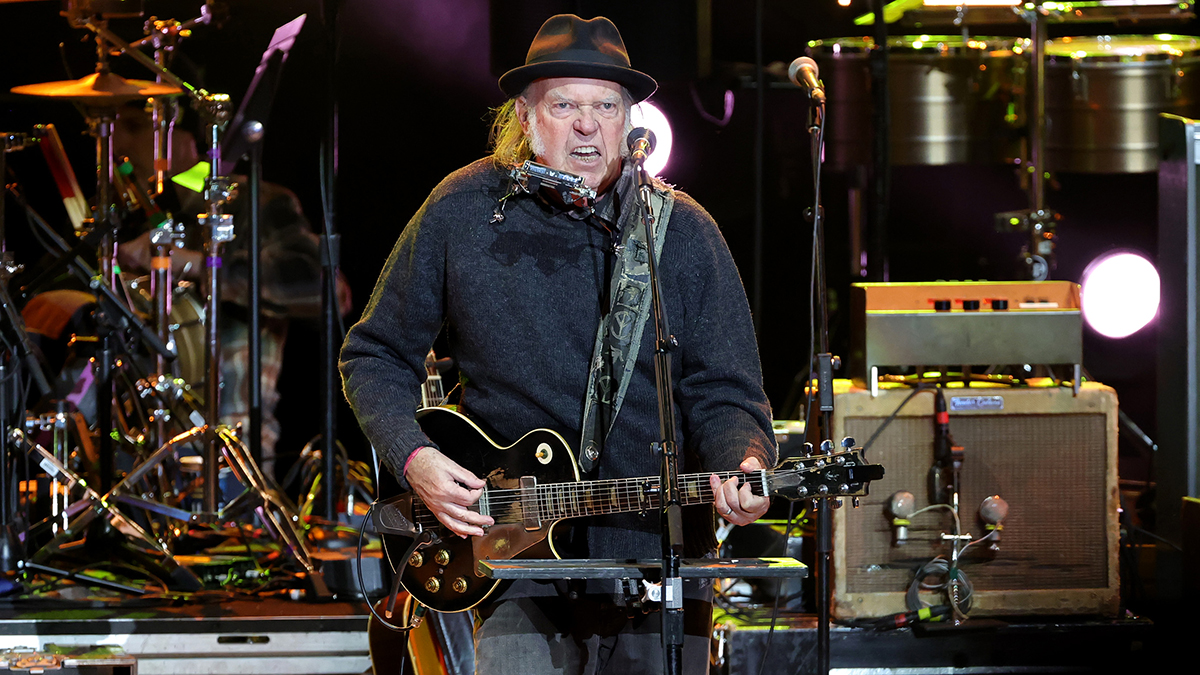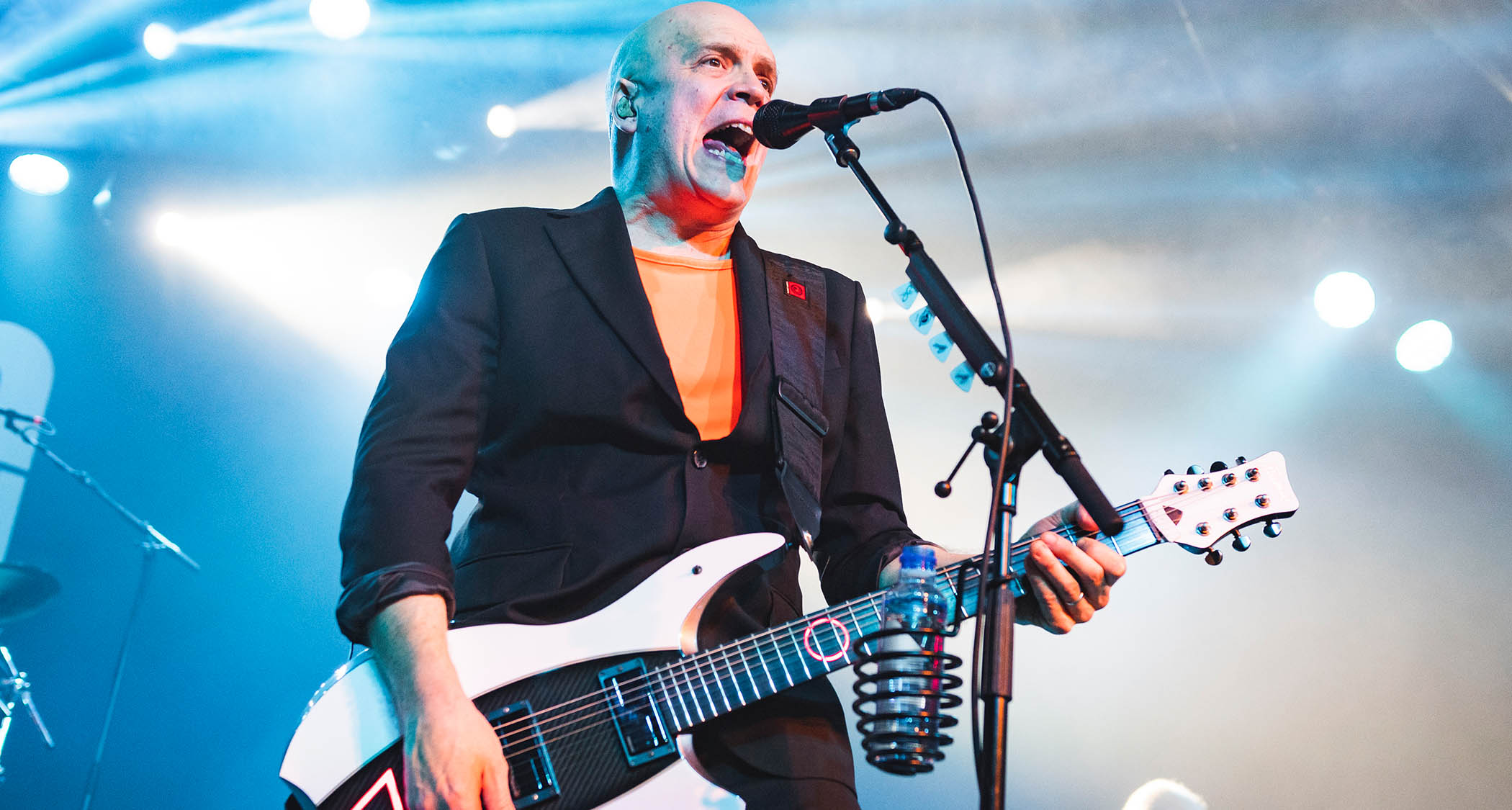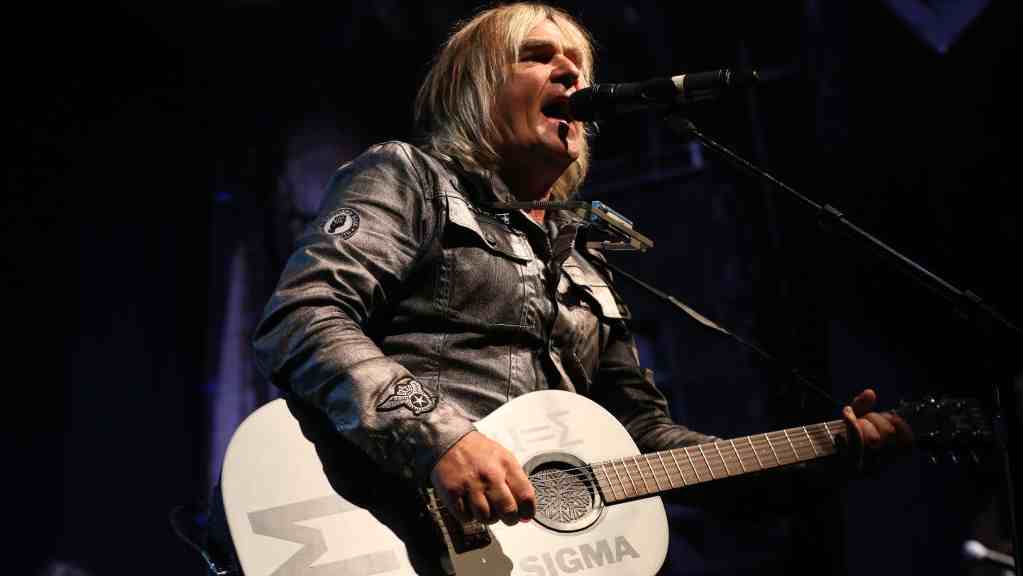The 50 best bassists of all time
The greatest bass players ever, as voted for by you, revealed...
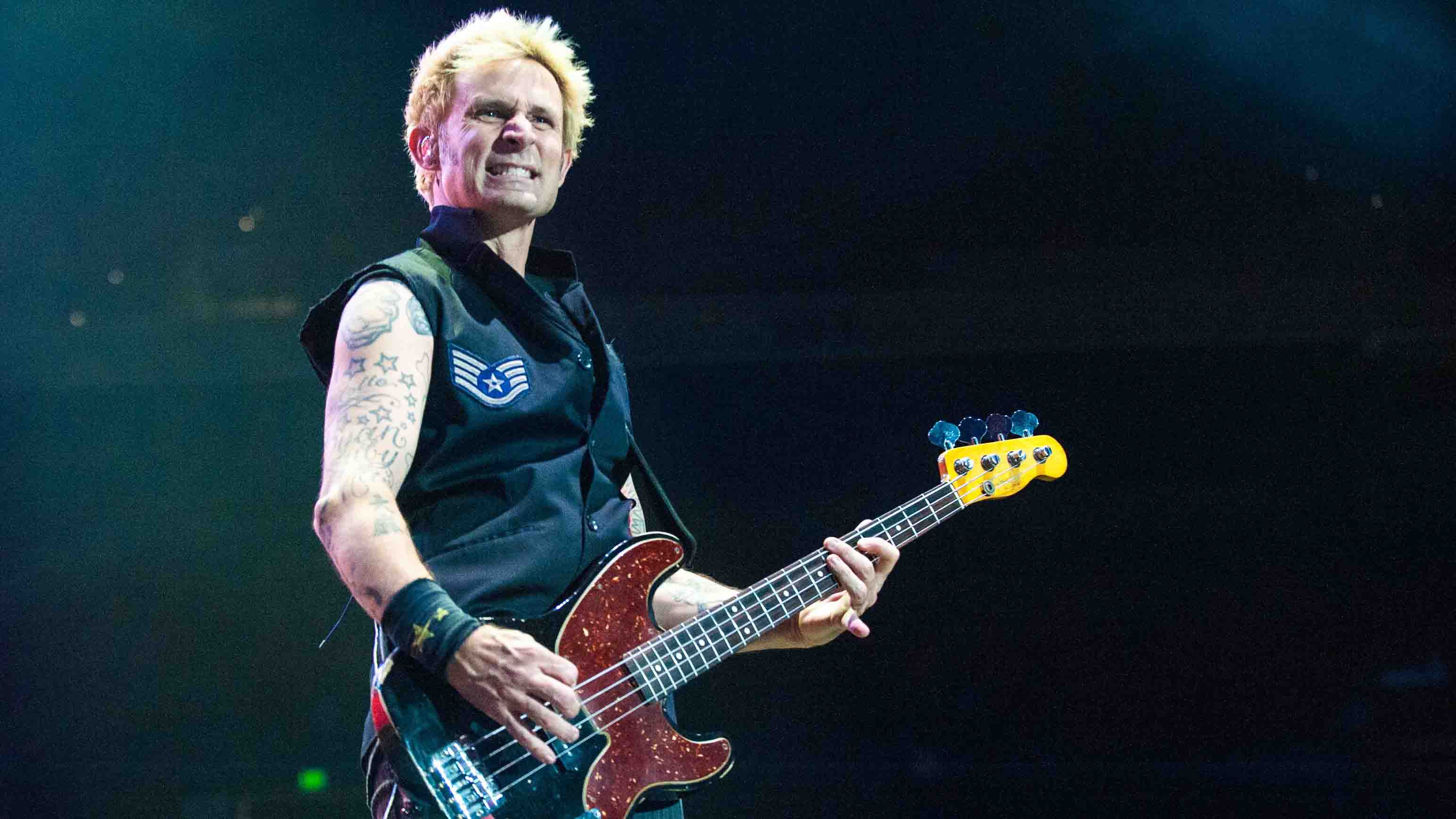
In the build-up to MusicRadar’s epic Bass Week, we asked you to submit your nominations for the greatest bass player in history.
We’re not just talking pure technical skill here; it’s as much about who wrote the catchiest basslines, played the smoothest licks and lent the greatest contributions to their respective recordings and bands.
And now, with tens of thousands of votes cast, we’re ready to reveal your picks for the 50 best bassists ever to don a four-string (or derivative thereof, prog fans).
So, without further ado, in reverse order, we present the greatest bassists of all time…
50. Mike Dirnt
Look, you don’t get to stadium levels without an ear for hooks, and in the world of pop-punk, Mike Dirnt has more than paid his dues with the bassline to Green Day’s Longview alone.
He’s also notable for being the only player in this list to be named after the instrument he loves; apparently, in his younger years, Michael Ryan Pritchard would play air bass, making a “dirnt, dirnt, dirnt” sound. Soon after, he met Billy Joe Armstrong, and punk history was made.
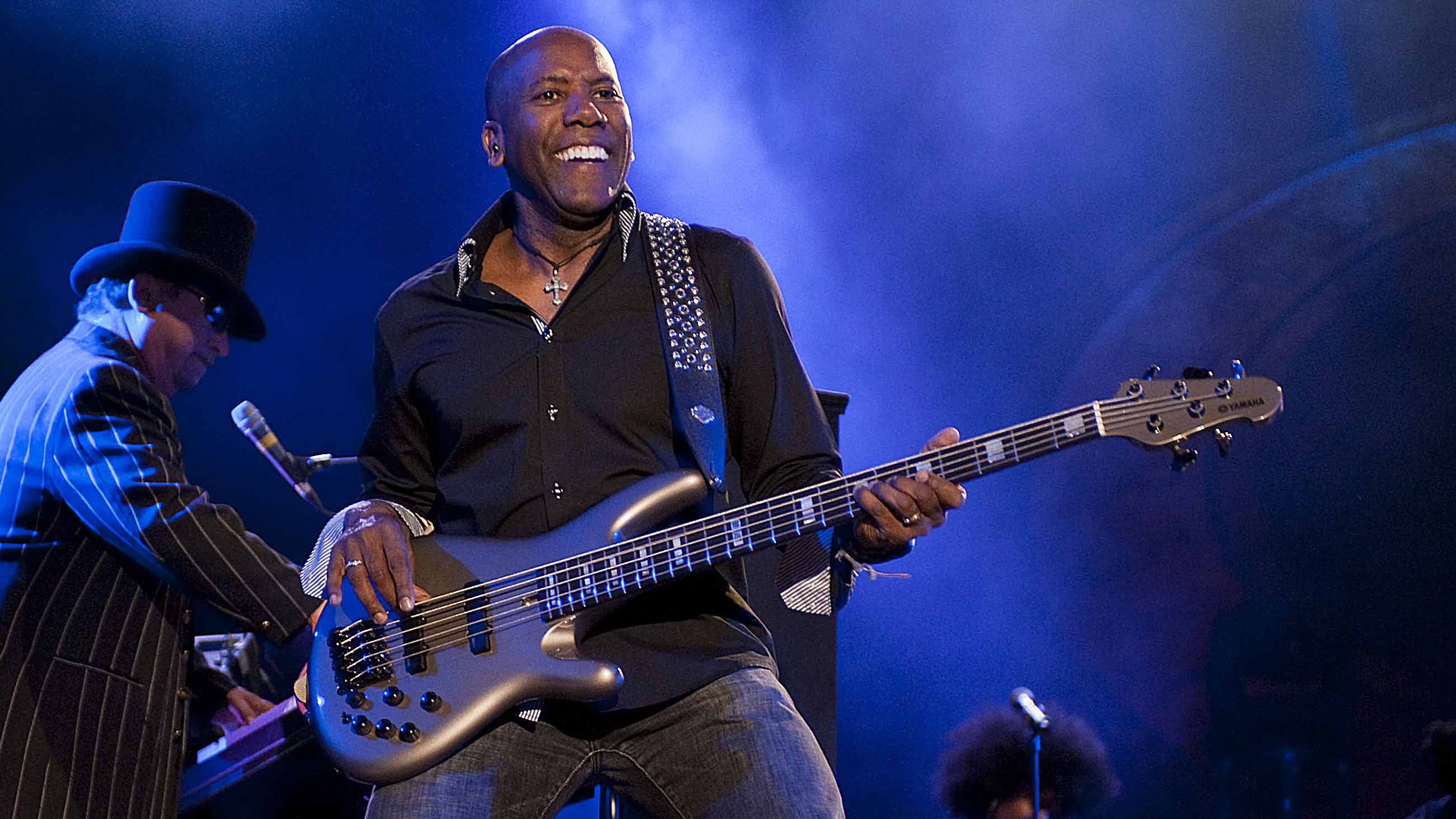
49. Nathan East
With a glittering CV including live, studio and writing collaborations with such diverse artists as Eric Clapton, Usher, George Harrison, Michael Jackson, Phil Collins, Whitney Houston and Celine Dion, to name but a few, Yamaha signature artist East is the go-to bass guy for more A-listers than you can count.
Nowadays, he can be found playing with Toto, but trust us, he's in your record collection somewhere.
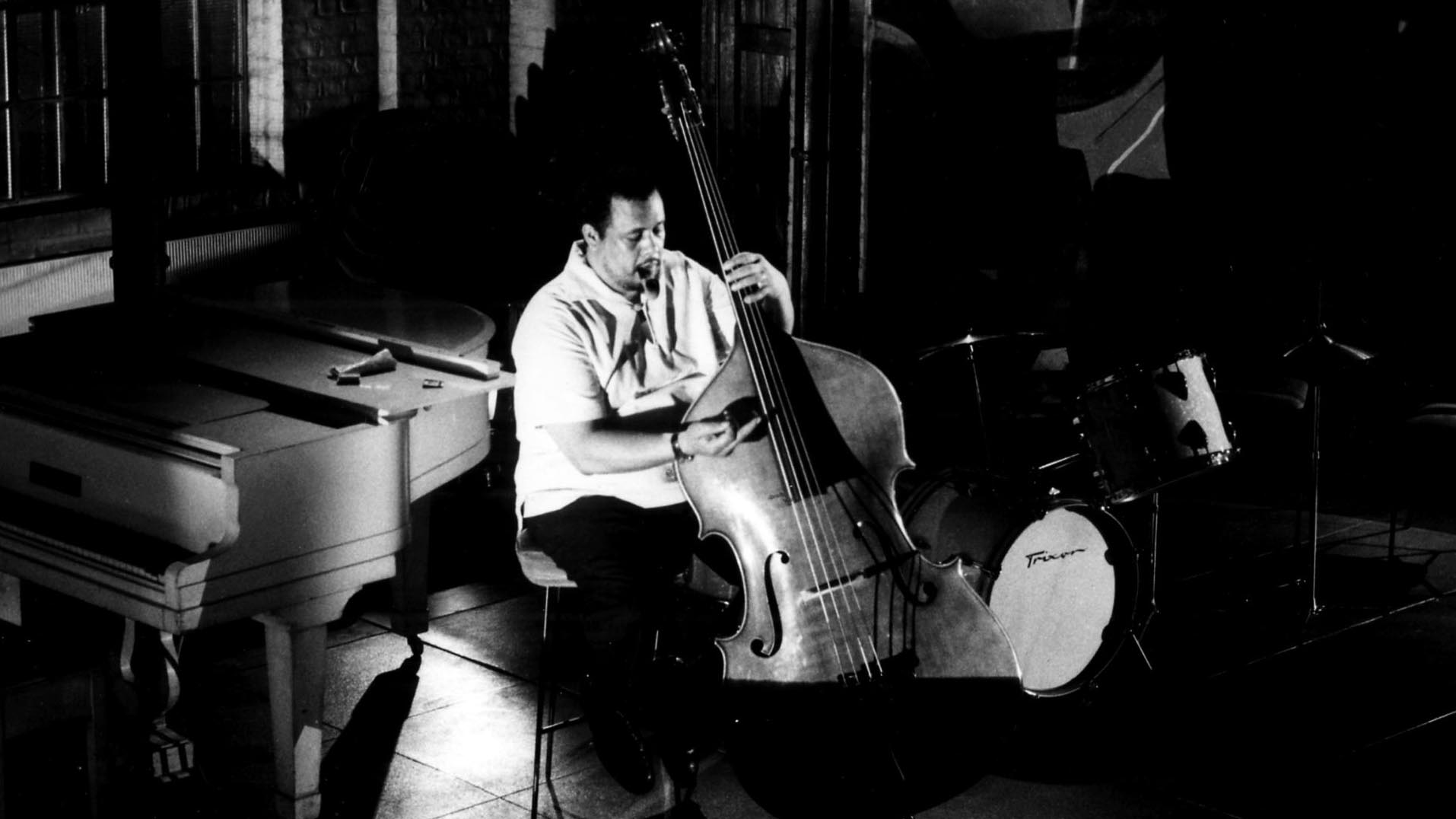
48. Charles Mingus
Nicknamed 'The Angry Man Of Jazz' due to his habit of dressing-down fellow musicians onstage and his quick-fire temperament, Charles Mingus is nonetheless regarded as a genius in the jazz world.
A phenomenal double-bassist and complex composer, Mingus was also renowned as a talent-spotter, pulling many unknowns into his big band.
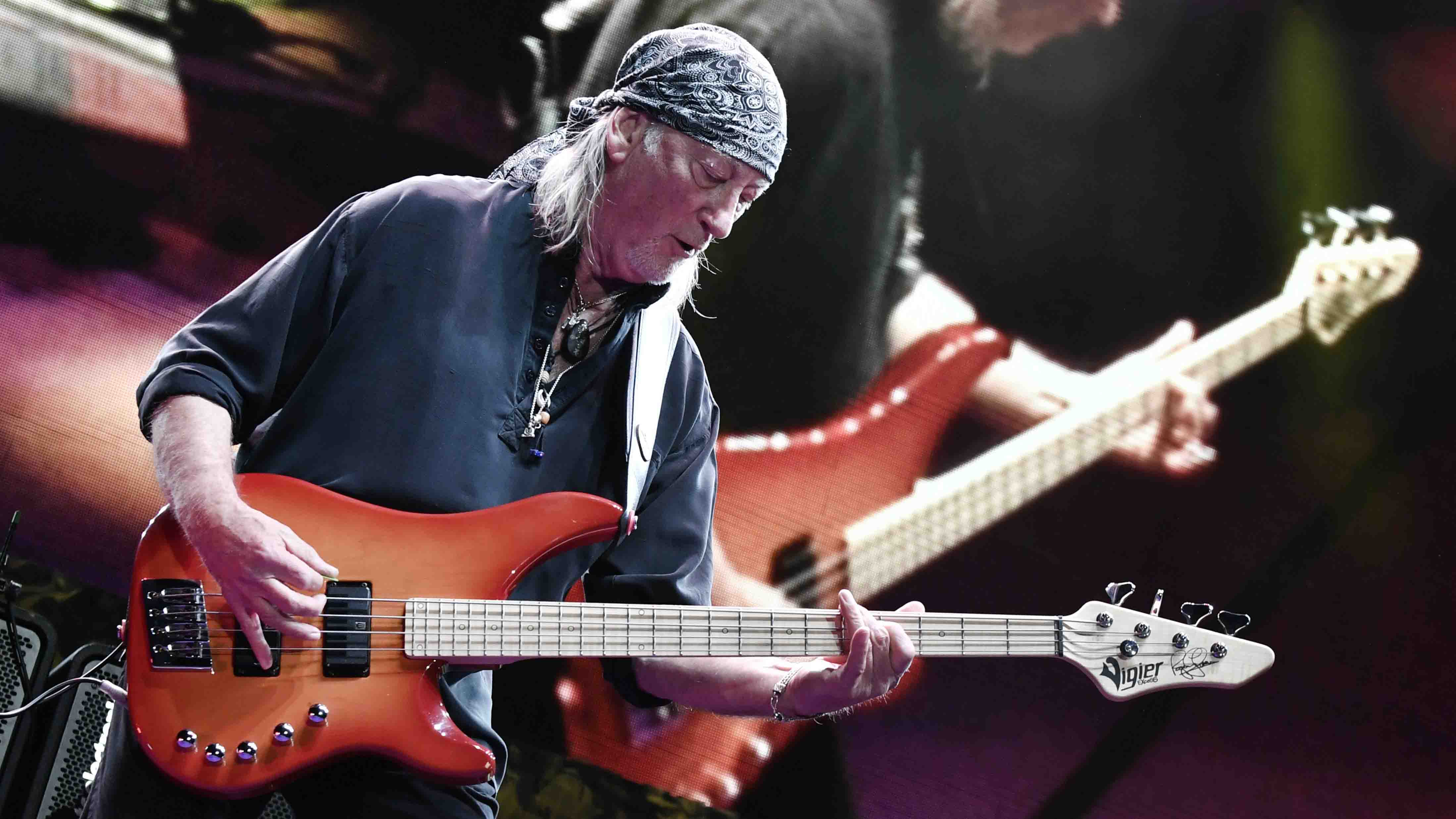
47. Roger Glover
An essential member of the legendary MKII Deep Purple line-up that produced the band's seminal albums Machine Head and In Rock, Glover was initially drafted into the band to help Ritchie Blackmore and Ian Paice take the band in a heavier direction. The plan worked...
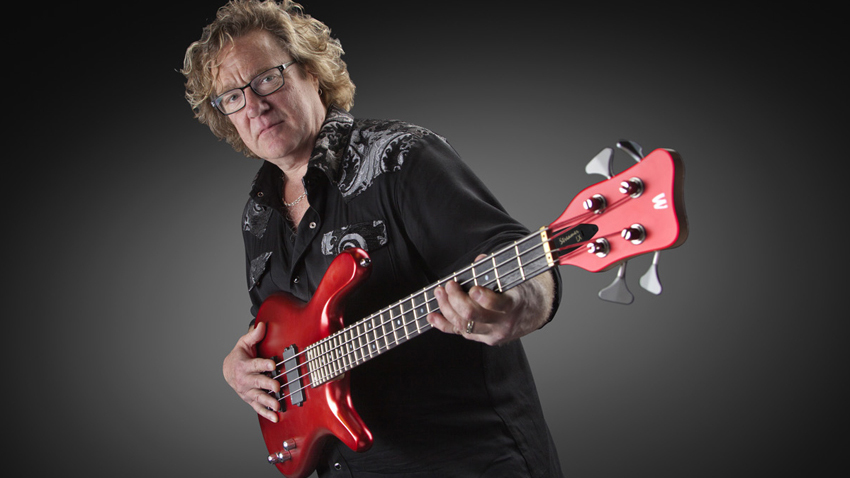
46. Stu Hamm
If you're going to cut the mustard standing next to the likes of Steve Vai, Joe Satriani and Frank Gambale every night, you better have your chops up.
Stu Hamm's wealth of tap 'n' slap tricks made him the virtuoso guitarist's bassist of choice, appearing on Vai's Flex-Able and Passion And Warfare albums, as well as Satriani's Flying In A Blue Dream.
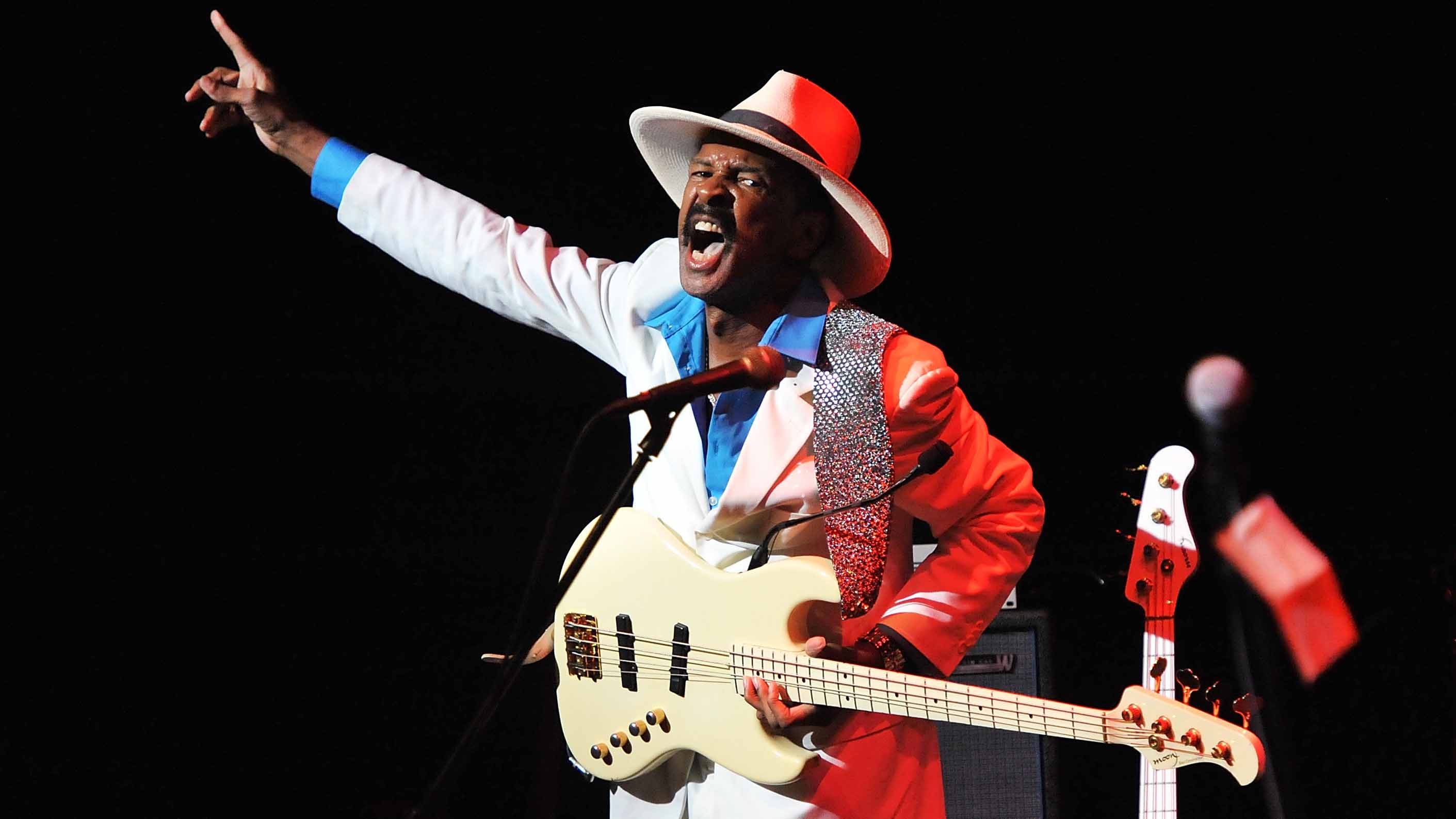
45. Larry Graham Jr
The man widely credited with inventing the slapping technique, Larry Graham Jr. had a huge impact on bass players, initially with Sly & The Family Stone (1967-1972), recording hits like Dance To The Music and Family Affair, before he went on to form Graham Central Station.
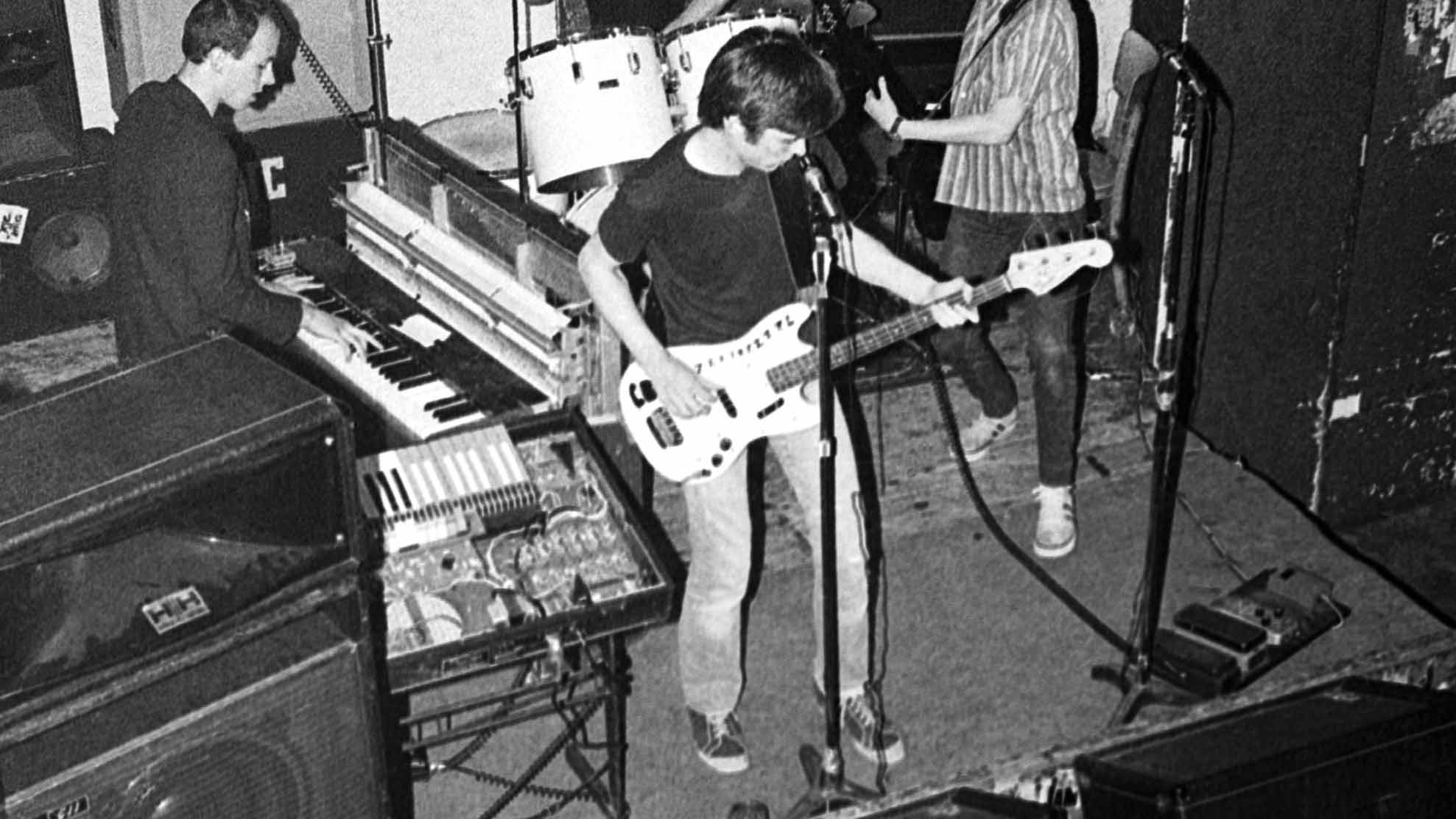
44. Colin Moulding
XTC, so the stories goes, were the critical darlings of the UK new wave scene, but did not achieve the commercial success of their peers. Nevertheless, they had a few deserved chart hits, most of which (Making Plans For Nigel, Life Begins At The Hop, Generals And Majors) were penned by bassist Colin Moulding.
Nowadays, you'll find the likes of Alt-J 'borrowing' most of their ideas.
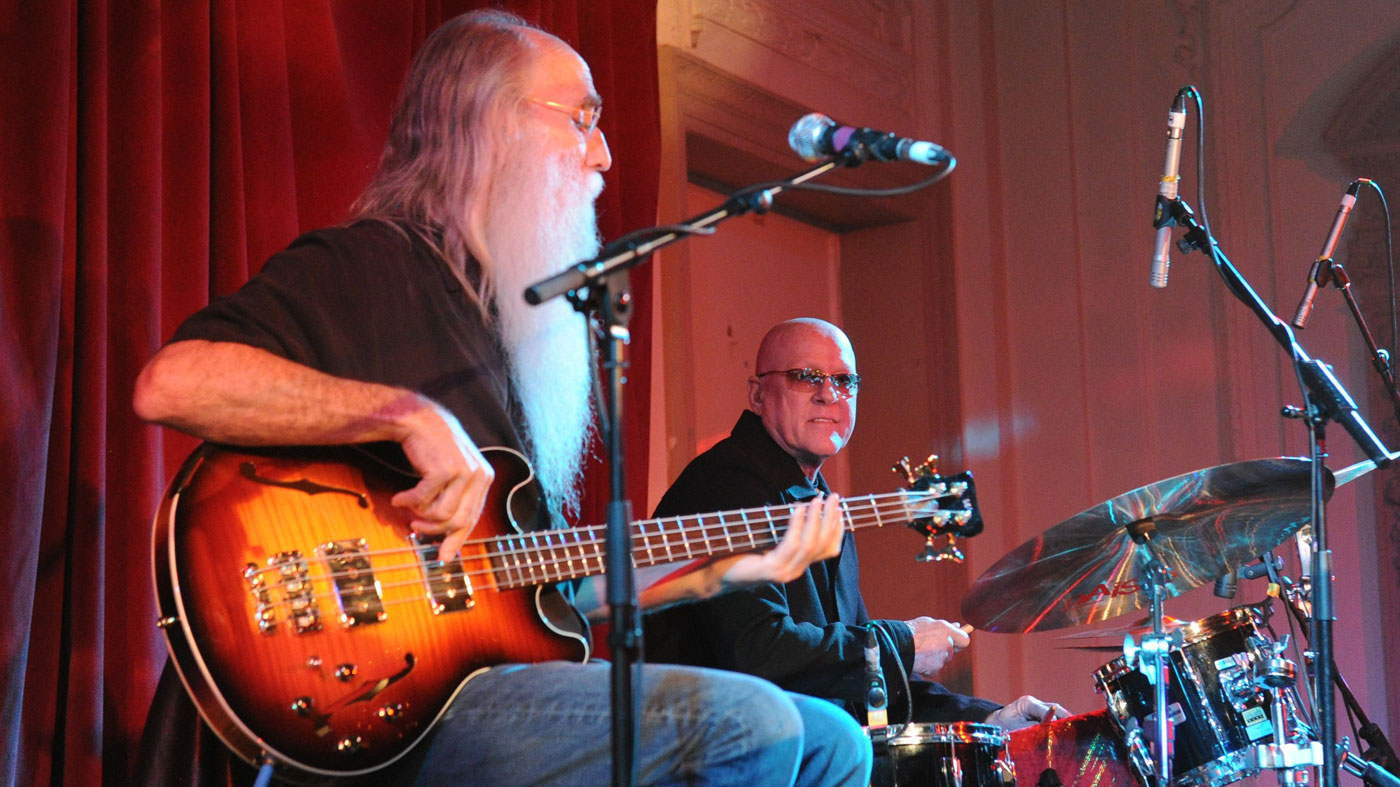
43. Leland Sklar
Sklar caught his break after he met James Taylor at California State University, and from that point on has not looked back.
Crosby, Still And Nash, Jackson Browne, Neil Diamond and The Doors also put him to work throughout the '70s, but he had no trouble finding work with the likes of Phil Collins, Robbie Williams, Dolly Parton and Diana Ross in the years that followed. One of the session world's most prolific players.
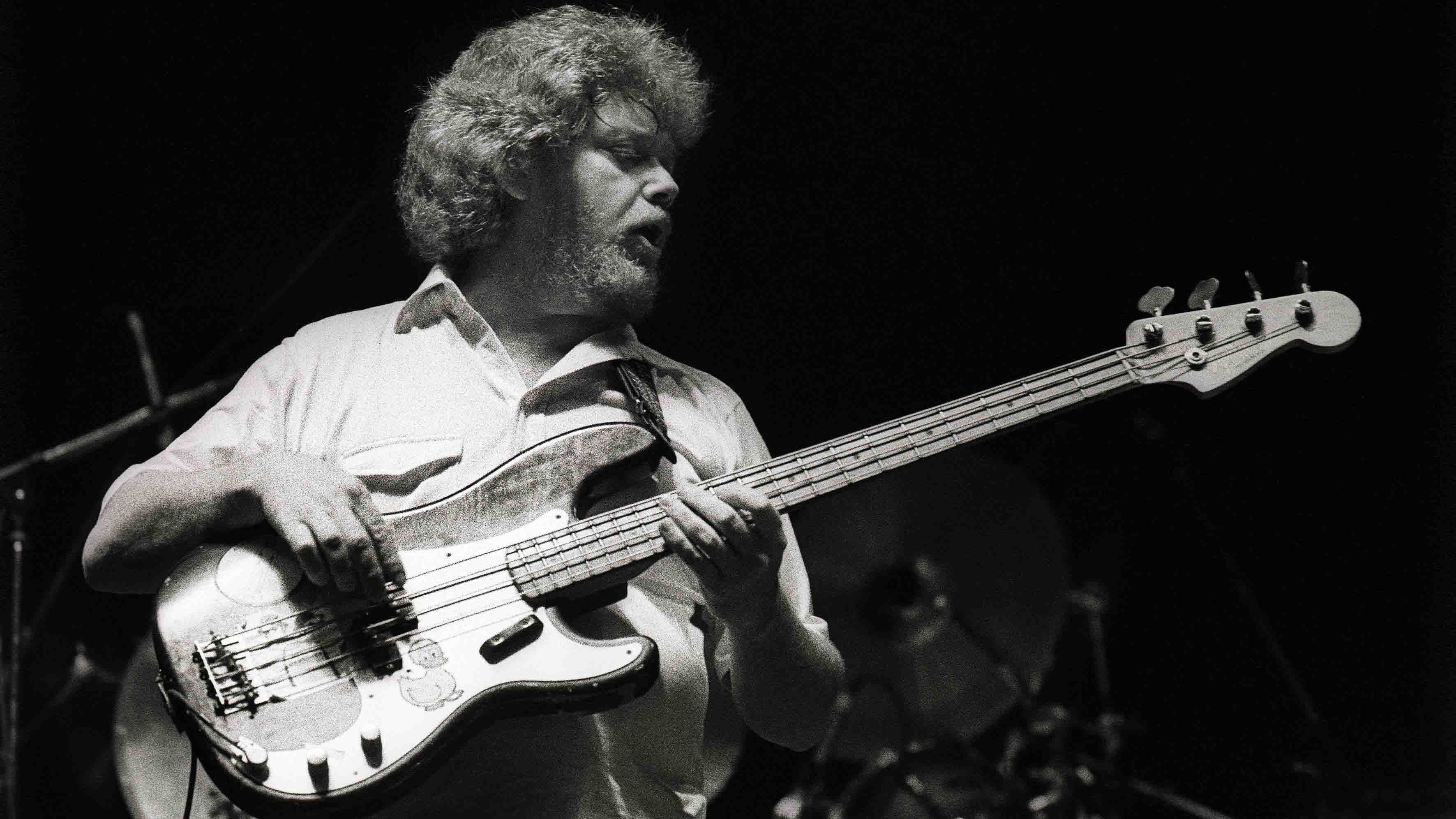
42. Donald 'Duck' Dunn
Donald 'Duck' Dunn served in the Stax Records house band and in Booker T. & The MGs alongside guitarist Steve Cropper throughout the '60s.
Song credits include basslines on Albert King's Born Under A Bad Sign and Otis Redding's Respect, not to mention appearances with The Staples Singers, Ray Charles, Eric Clapton, Bob Dylan and Neil Young.
That said, many will remember him best as the pipe-smoking bassist in the Blues Brothers film...
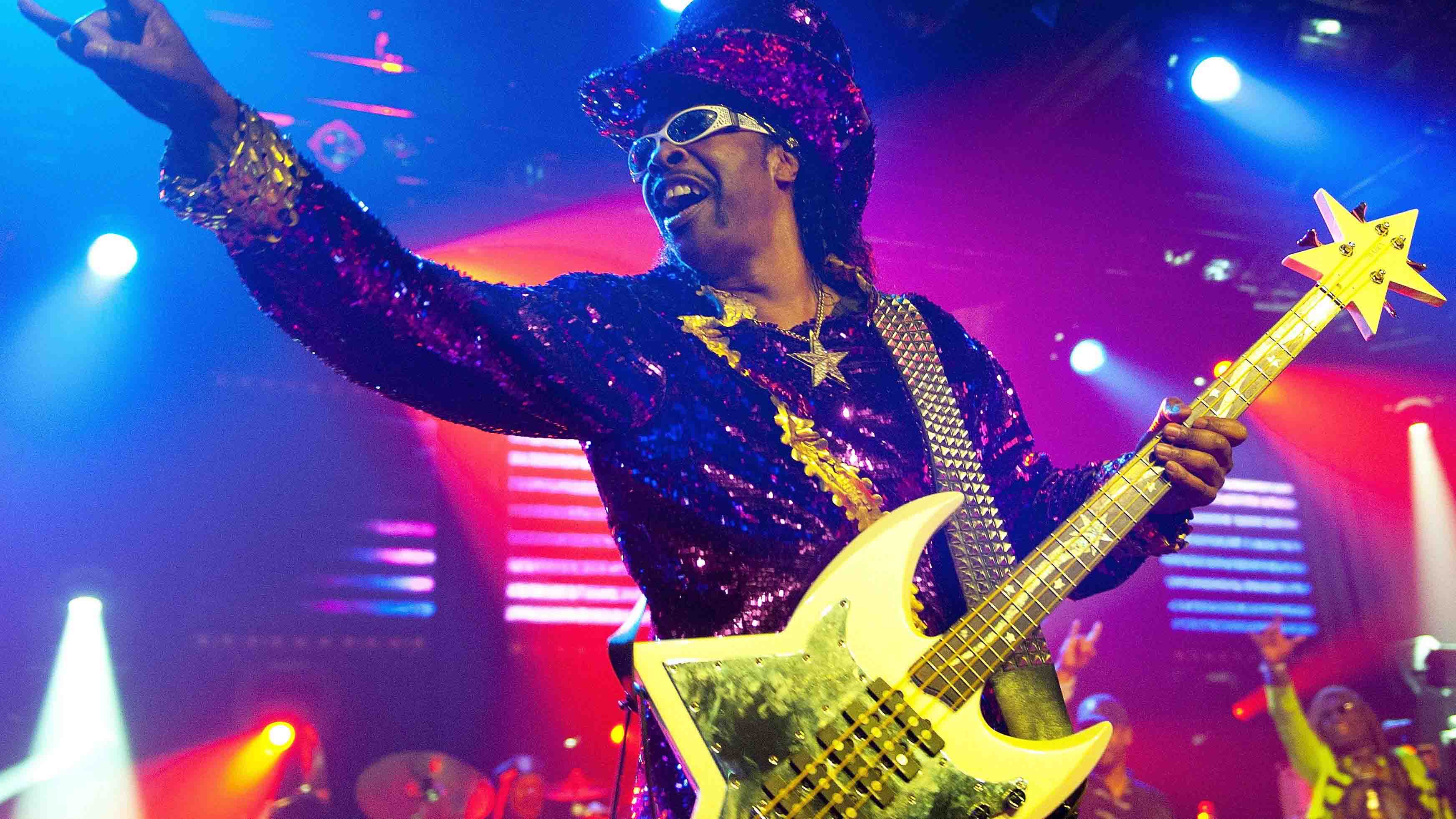
41. Bootsy Collins
There are plenty of funky players in this rundown, but only one man is the lead professor at Funk University.
From playing on James Brown's Sex Machine to his P-Funk credentials, Bootsy is pretty damn close to being the dictionary definition of funk. Whether Bootsy is toting his Space Bass or a newer Warwick signature model, a funky time is guaranteed for all.
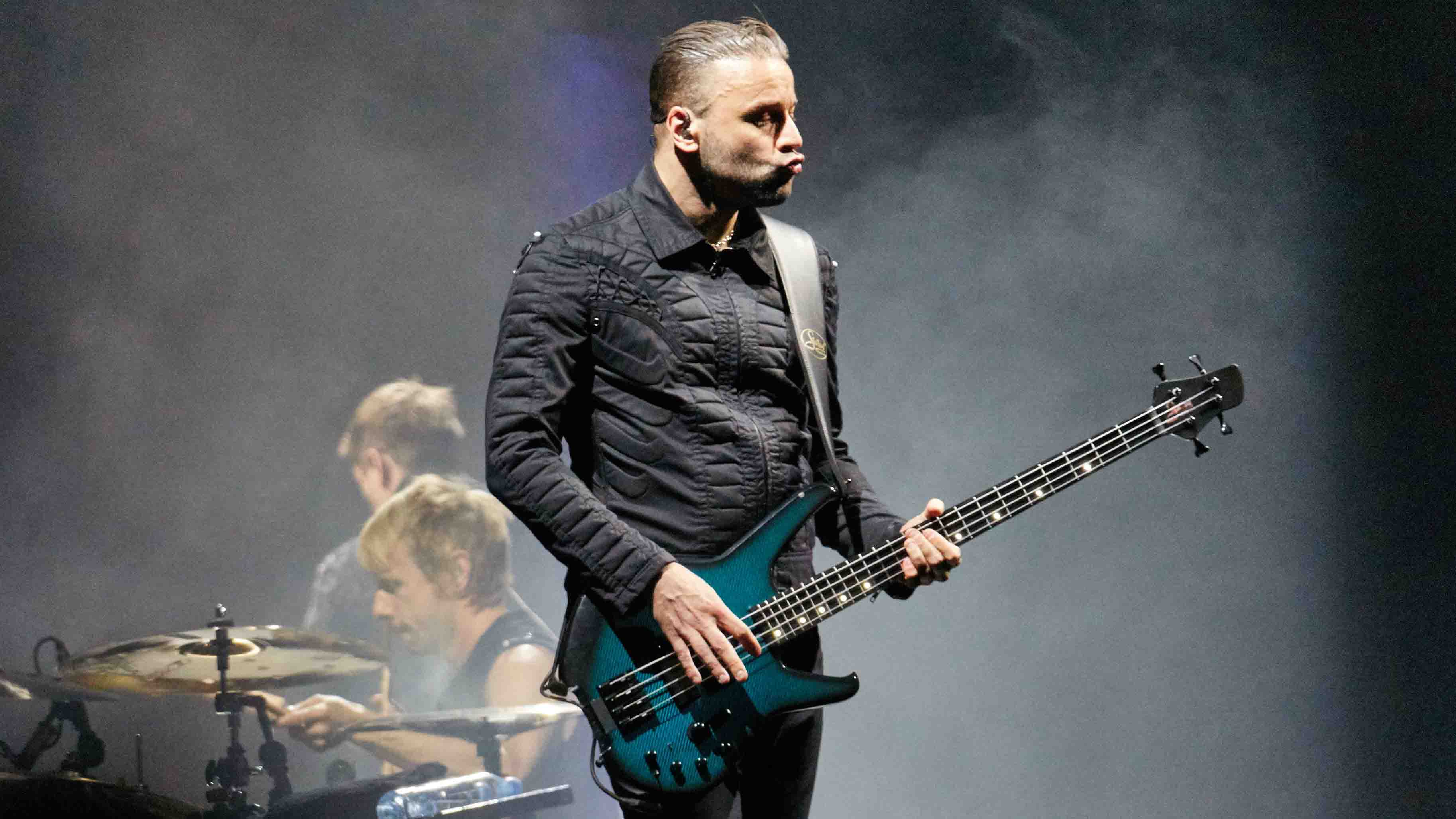
40. Chris Wolstenholme
Originally a drummer, the Muse bassist picked up a four-string when he was invited to join Matt Bellamy and Dominic Howard's new outfit, Rocket Baby Dolls.
Fortunately, they changed the band name, and Chris went on to bring us iconic distorted lines like Hysteria, Time Is Running Out, Plug In Baby and New Born.
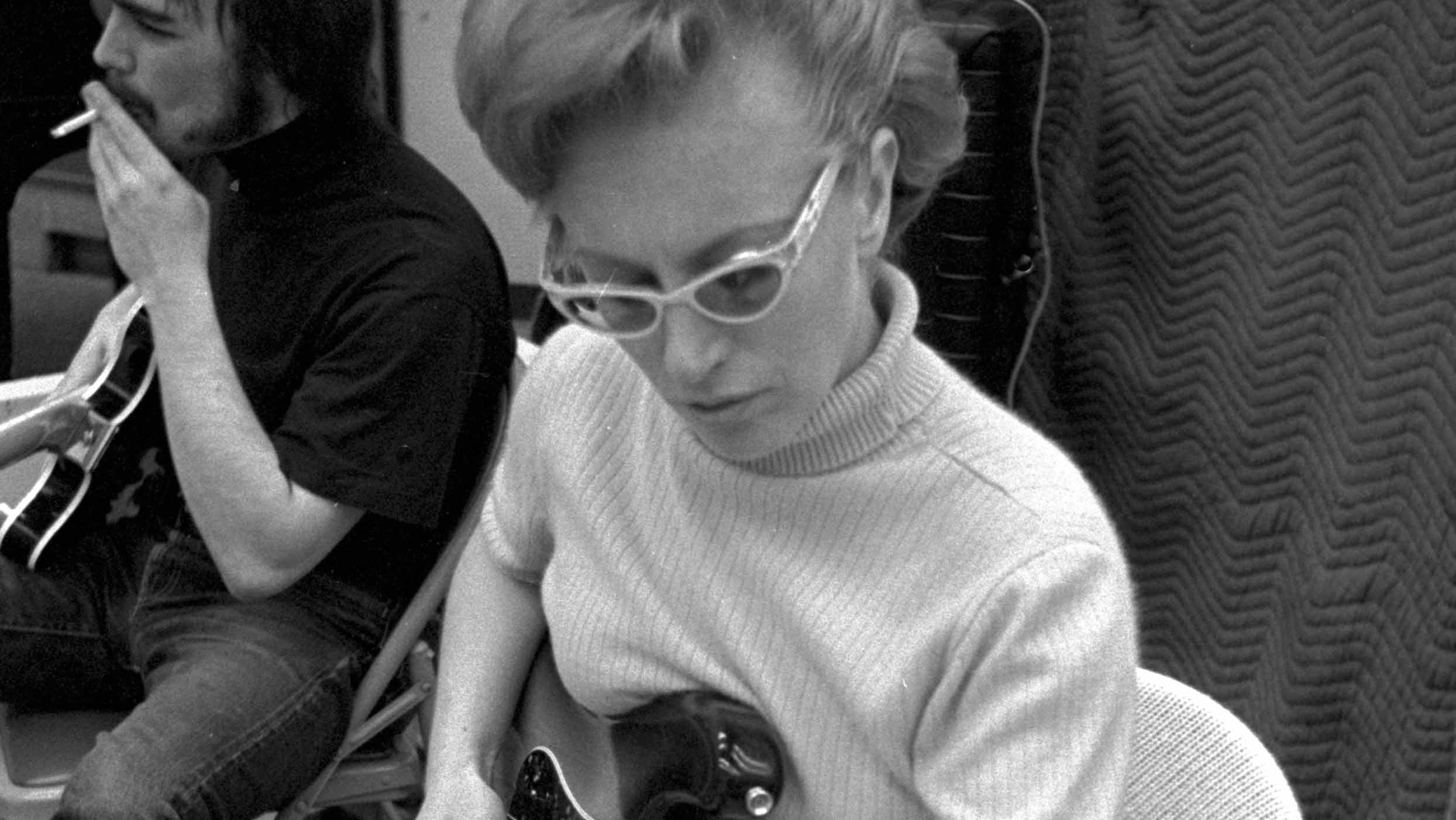
39. Carol Kaye
Pet Sounds. Good Vibrations. Song Of Innocence. Songs Of Experience. Homeward Bound. Heroes And Villains. These Boots Are Made For Walkin'. Then He Kissed Me. Wichita Lineman. You've Lost That Lovin' Feeling. River Deep - Mountain High.
As part of The Wrecking Crew, Carol Kaye contributed guitar and bass to a succession of stone-cold classic American pop LPs and 45s. As CVs go, that's pretty hard to beat.
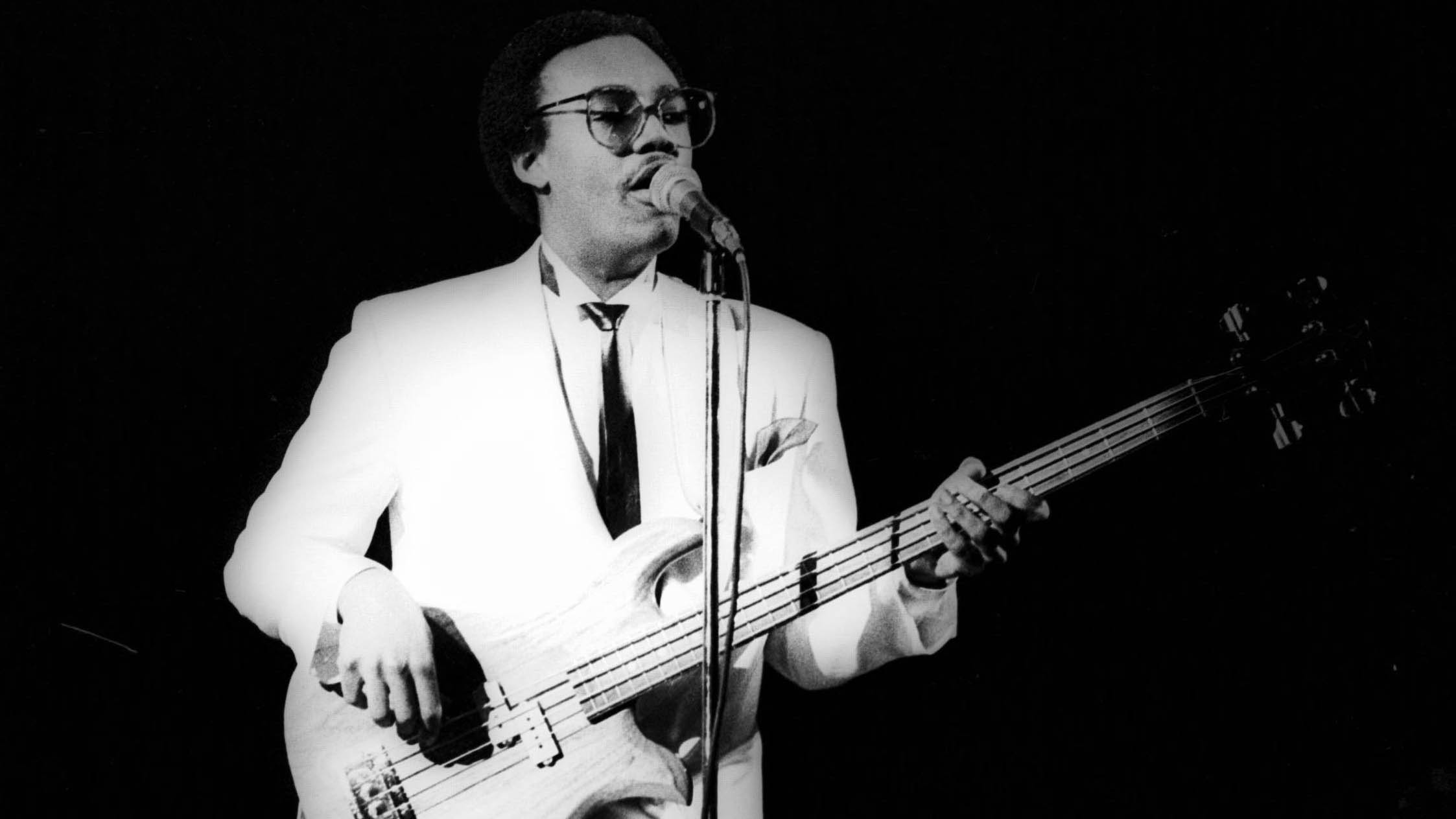
38. Bernard Edwards
The man responsible for some of the best basslines ever written, Bernard Edwards first teamed up with Nile Rodgers in the early '70s under the moniker of The Big Apple Band, eventually becoming Chic in 1976 when they recruited drummer Tony Thompson and singer Norma Jean Wright.
Edwards wrote a string of bass-worshiping disco hits with the band, including Le Freak, Everybody Dance and, of course, the iconic Good Times.
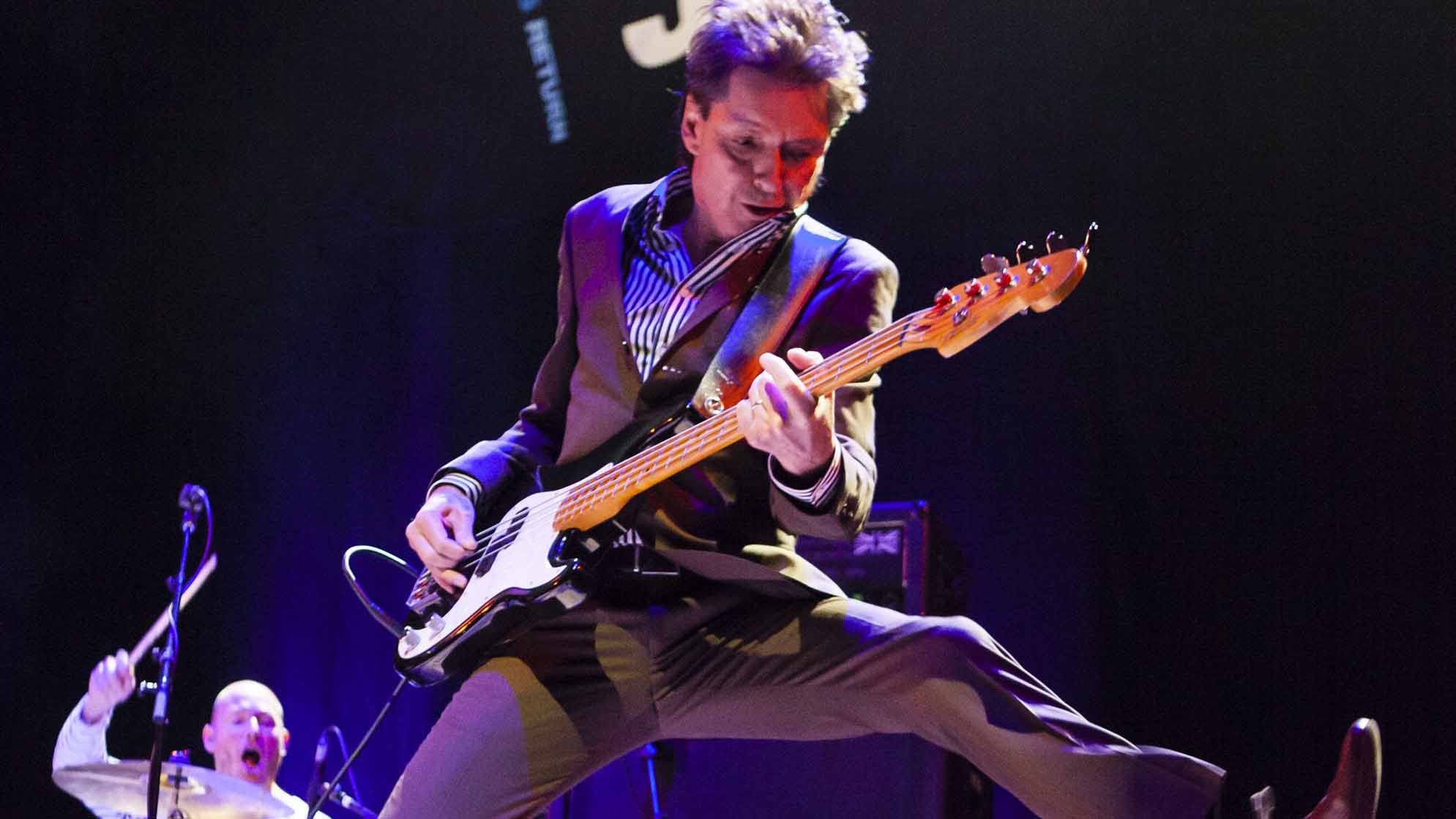
37. Bruce Foxton
The Jam's stripped-back three-piece line-up gave bassist Bruce Foxton the opportunity to make effective use of the space in Weller's soulful new wave compositions - and it was one he didn't waste.
As evidenced by the doom-laden opening line to Eton Rifles, the popping run of Going Underground and his iconic Motown-influenced run on A Town Called Malice.
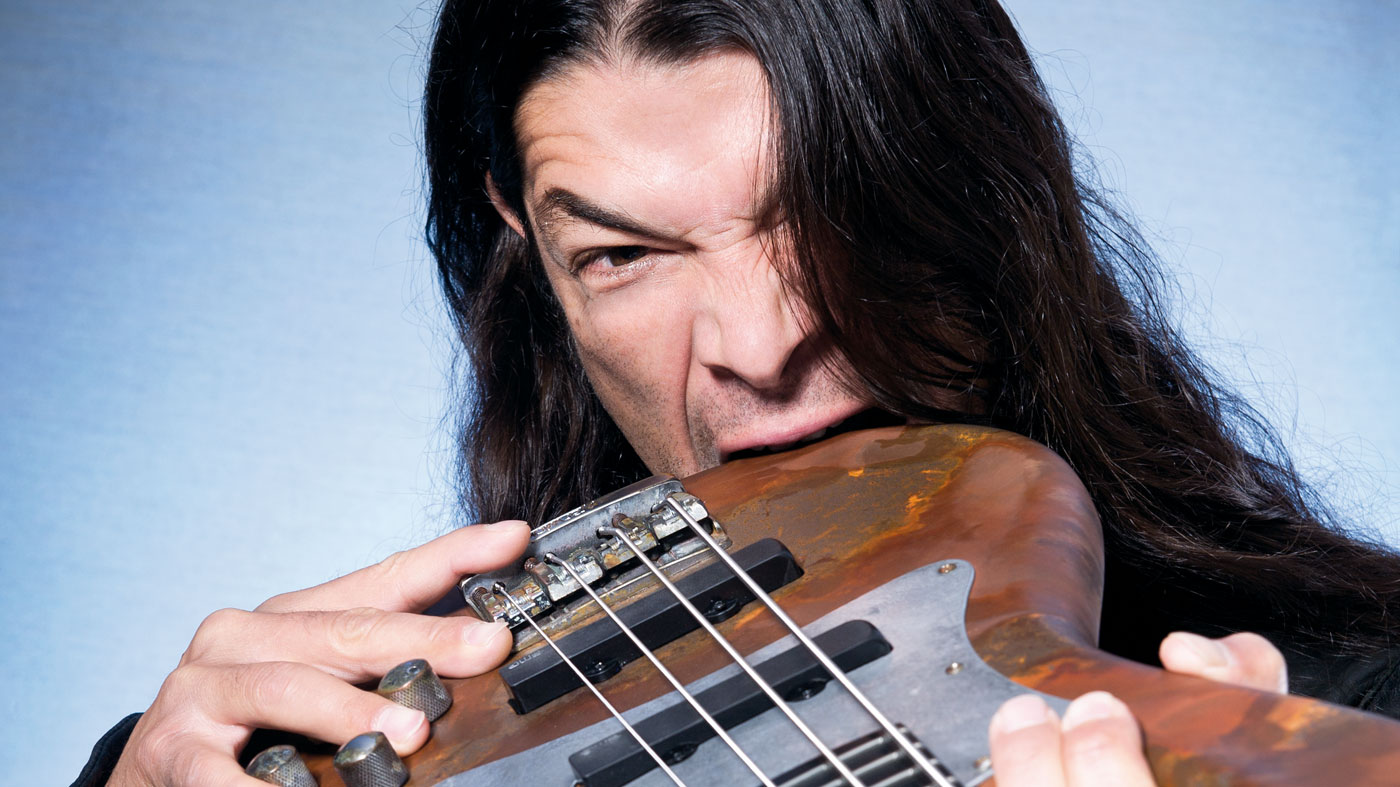
36. Robert Trujillo
Sure, most people now know him as the crab-walking, longest-serving Metallica bassist, but Trujillo was once bass player for Ozzy Osborne, and before that, delivered serious funk in Infectious Grooves.
Besides his unbelievable fingerstyle speed, Trujillo is also apparently an excellent tutor, judging by the playing of his teenage son, Tye, who has already filled in for Korn on tour.
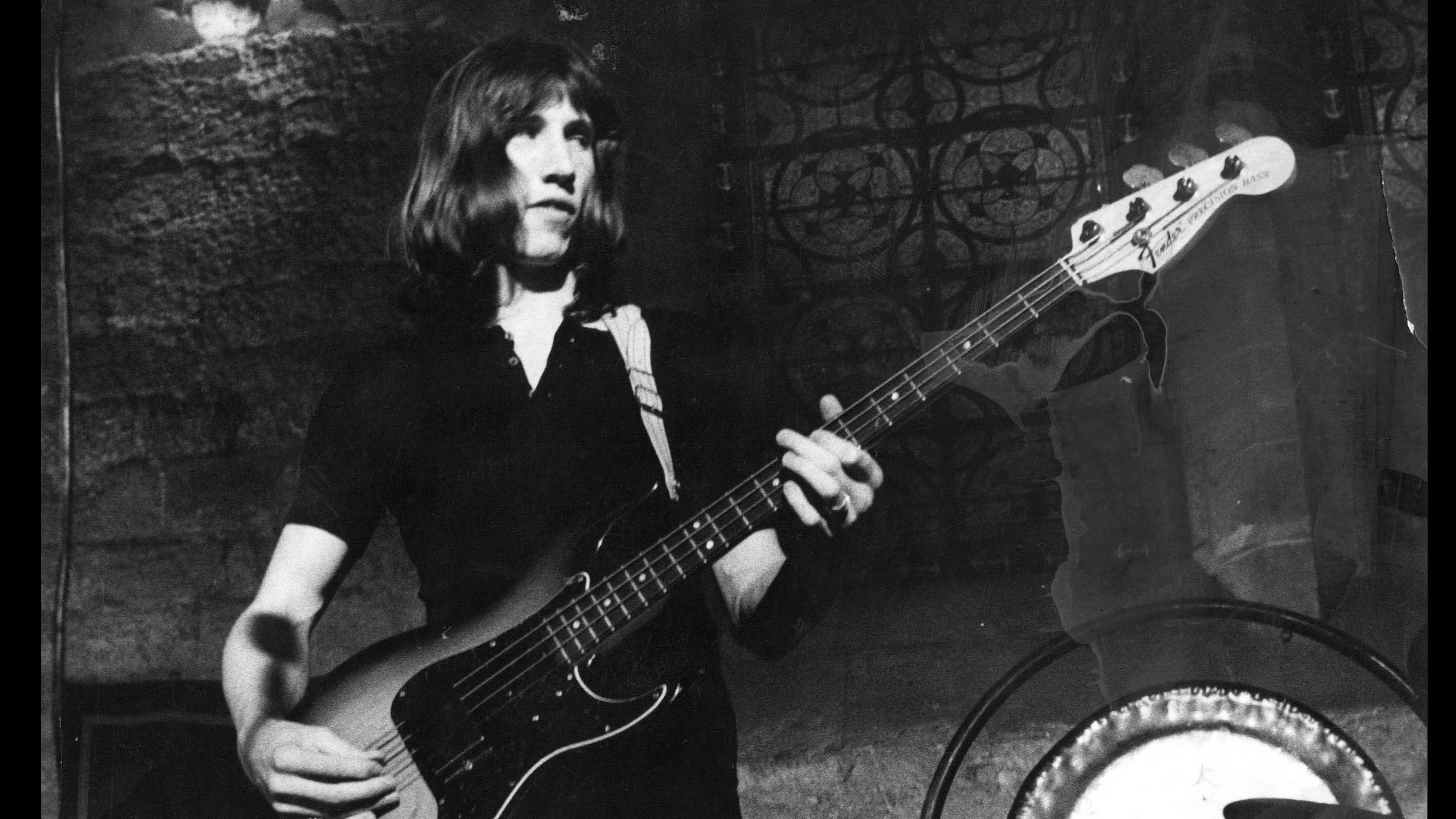
35. Roger Waters
As much as Syd Barrett is (rightly) held up as the errant genius of the group, it wasn't until Roger Waters took the reins in 1968 that Pink Floyd produced their greatest work.
Five years later and the band were embarking on a consecutive run of albums that included Dark Side Of The Moon, Wish You Were Here, Animals and The Wall. But you know that already, so we'll just leave you with this equally obvious example of his talent for an iconic bassline...
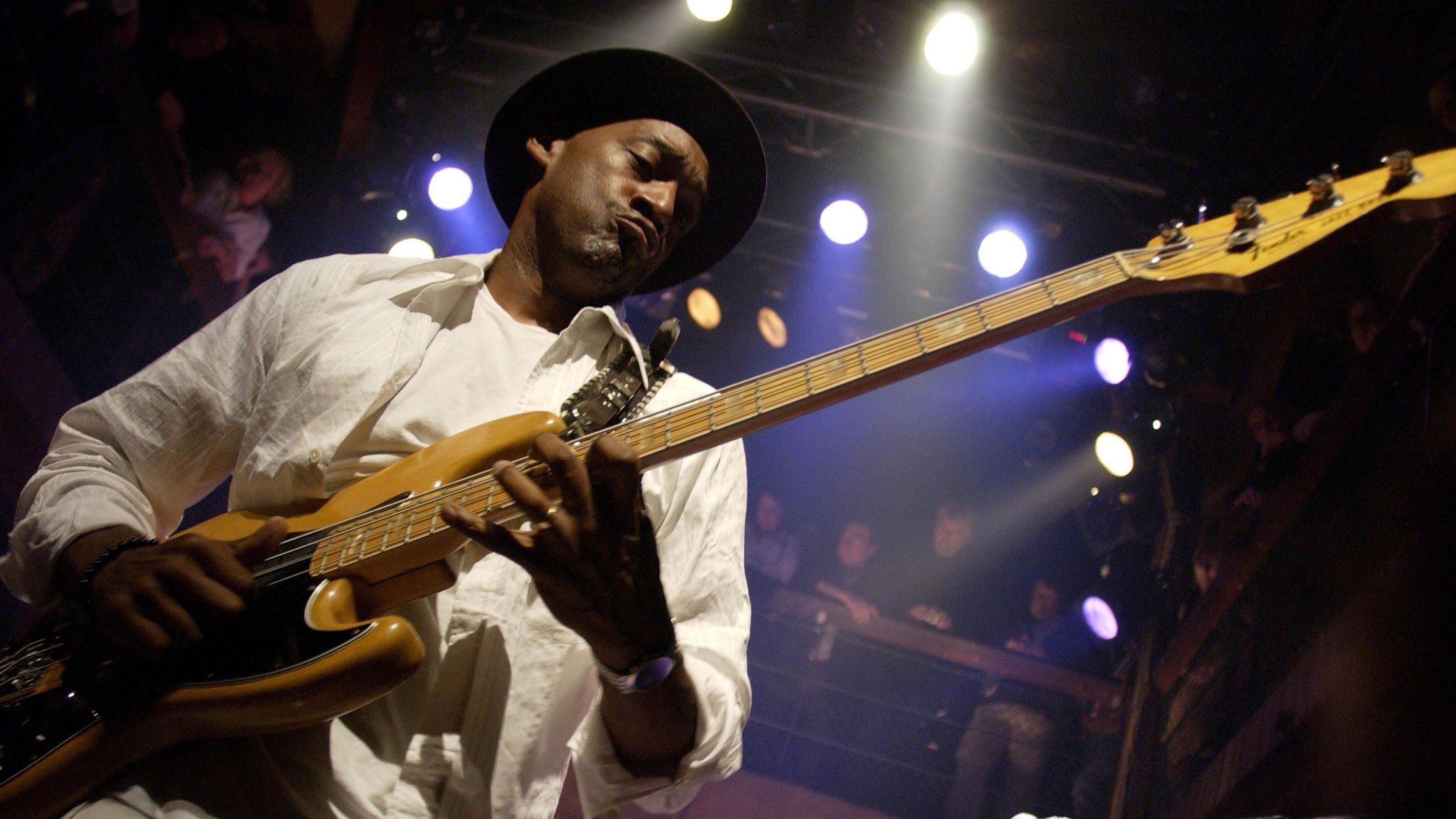
34. Marcus Miller
Anyone who can stick Miles Davis, Herbie Hancock and Luther Vandross on their CV clearly has some serious chops, but Marcus Miller’s talents go above and beyond mere name-checking.
Famed for his love of Fender Jazz basses, Mr Miller has had a considerable solo career, as well as sidelines in production and film score composition.
That’s not to mention SMV, his all-star bass ensemble with two other bassists on this list, Stanley Clarke and Victor Wooten. Now, that’s a supergroup.
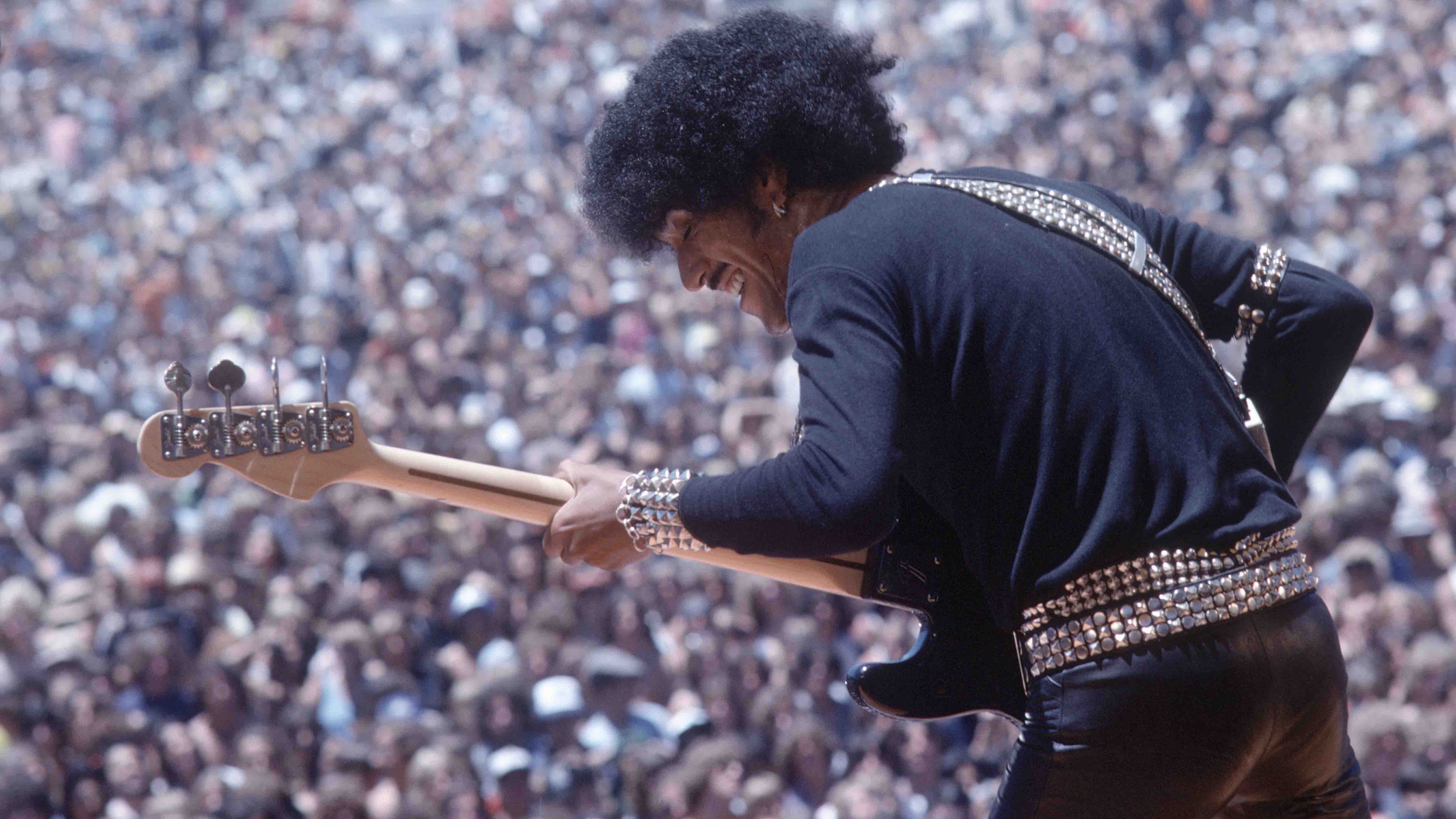
33. Phil Lynott
Amidst the turmoil and line-up changes, the chaos and charisma of Lynott and Lizzy, it's easy to forget that the gifted singer, songwriter, spokesperson and frontman at centre-stage was also one hell of a bass player.
Lynott's hometown of Dublin erected a statue in his honour, and you clearly love him, too.
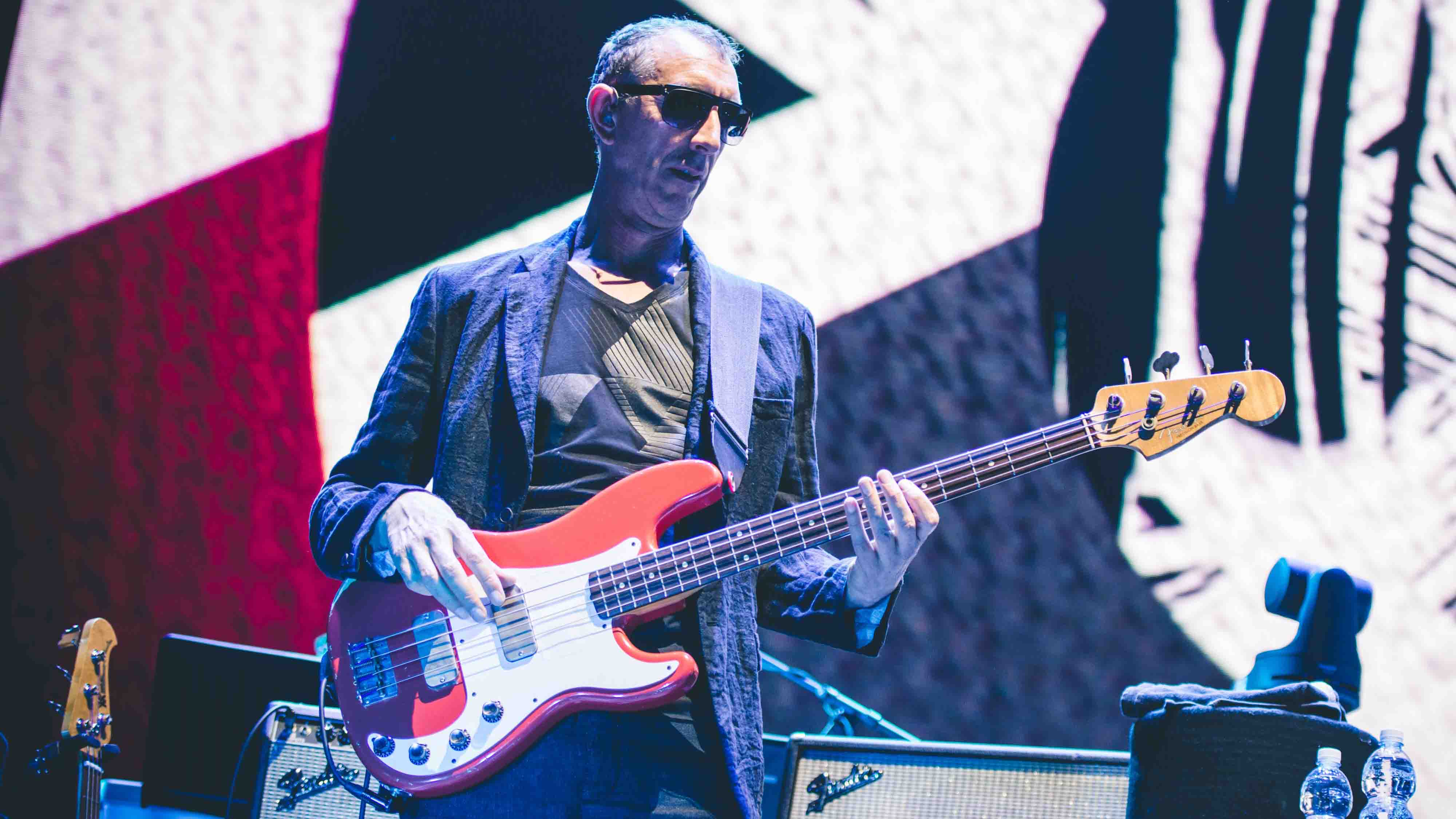
32. Pino Palladino
Session ace Pino Palladino broke through playing fretless bass on Gary Numan's I, Assassin in 1982 and quickly went on to play with the likes of David Gilmour, Peter Gabriel and Phil Collins.
In the past decade, he's spent his time filling the considerably large shoes of John Entwistle in The Who and also cropped up on Adele's planet-dominating album 21.
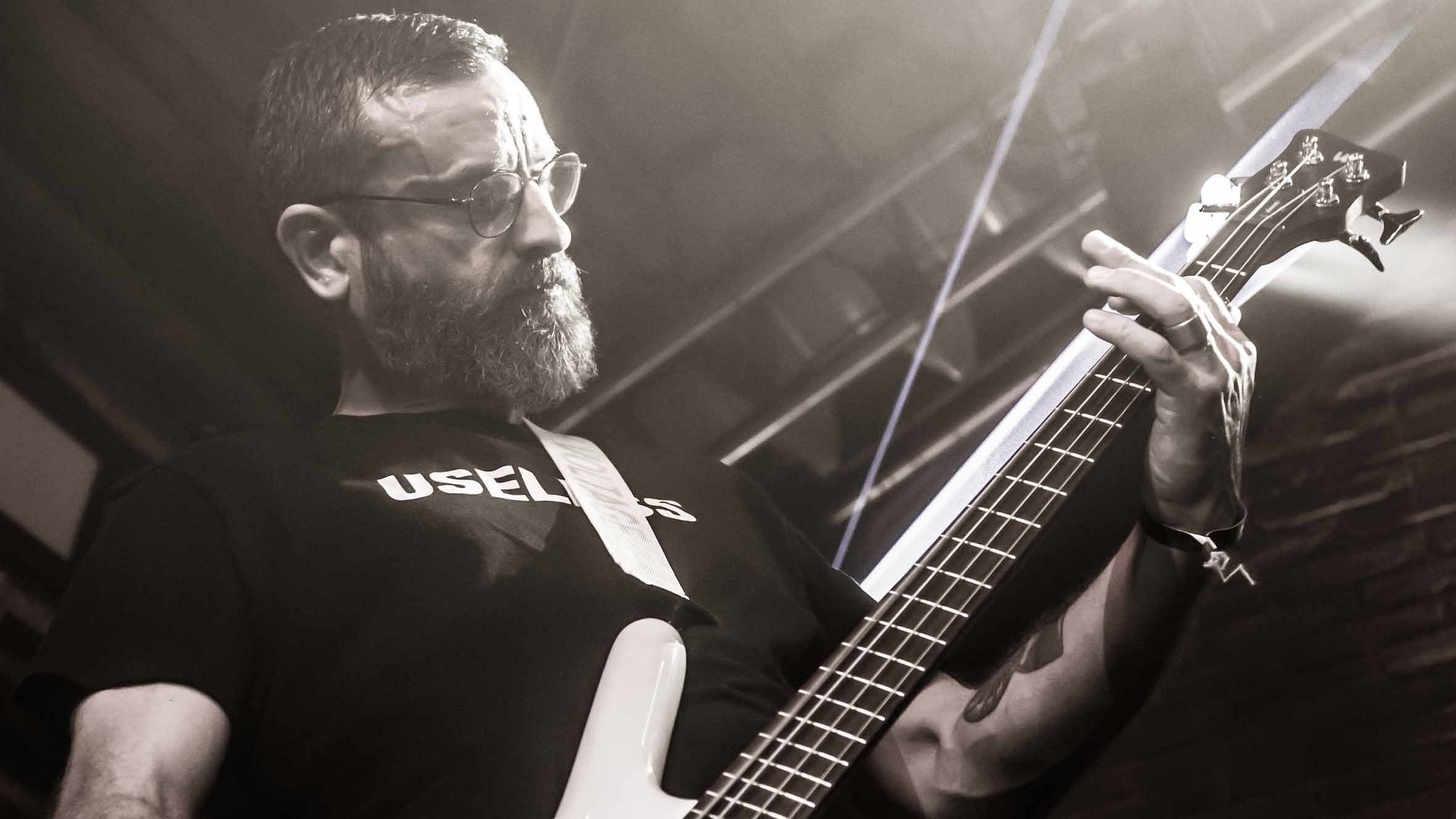
31. Justin Chancellor
It’s been over a decade since Tool last released an album (2006’s 10,000 Days), but it seems your love for the US prog juggernaut’s bass maestro just keeps growing.
Justin Chancellor is the most FX-keen player on this list, utilising his wealth of pitch-shifters, distortions and modulations to lend Tool their trademark ethereal sonic textures. Just hurry up with that new album, will you?
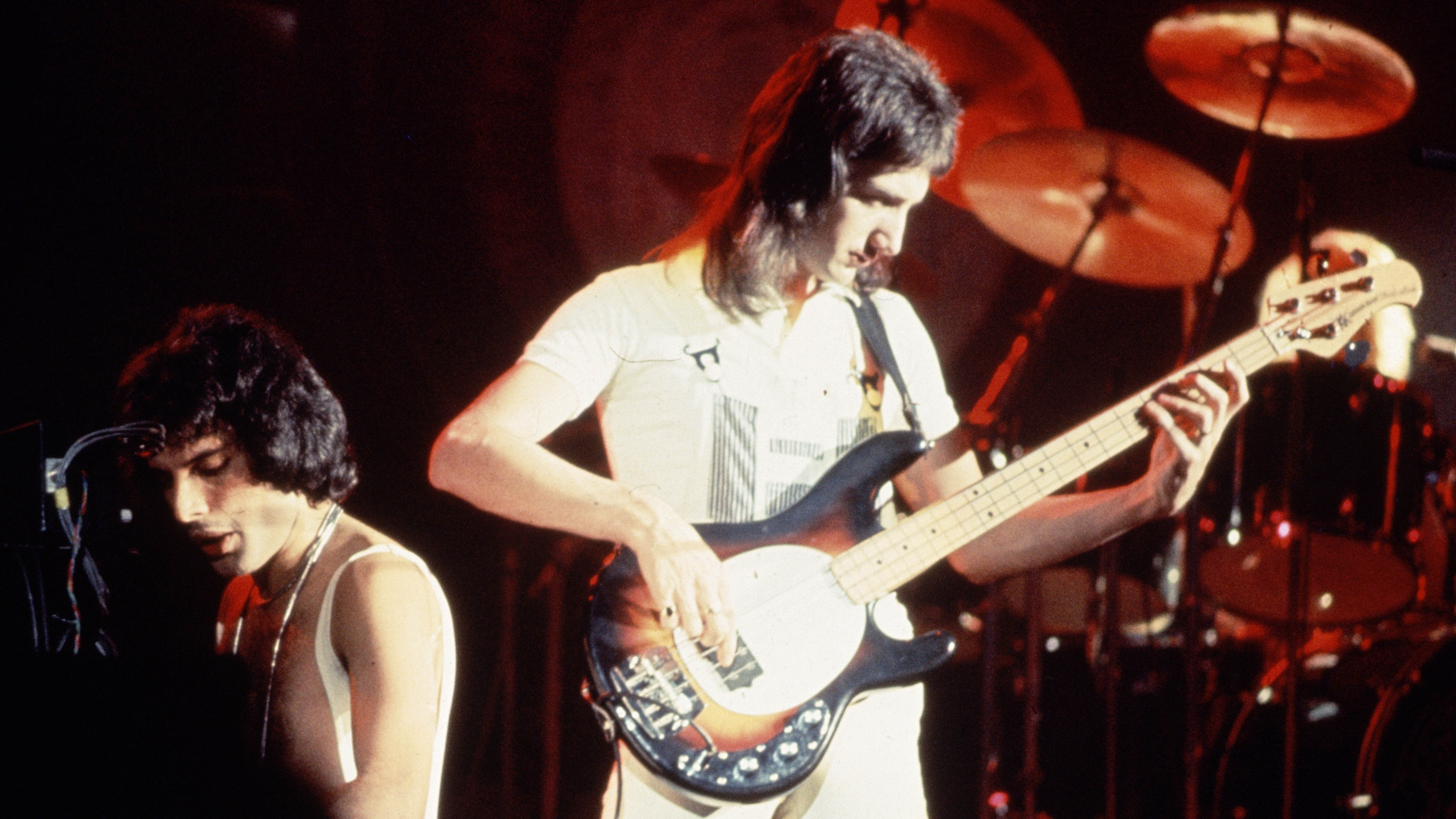
30. John Deacon
The Queen bassist deserves a place on this list purely for his hand in performing two of the most iconic (and most-sampled) basslines of all time in Under Pressure and Another One Bites The Dust.
But Deacon was much more than that. His speedy scalic, almost classical approach to the low-end always melded majestically with Brian May and Freddie Mercury’s lofty ambitions for Queen.
Deac may not have been involved with the band’s post-reformation efforts, but his formidable legacy is in no doubt.
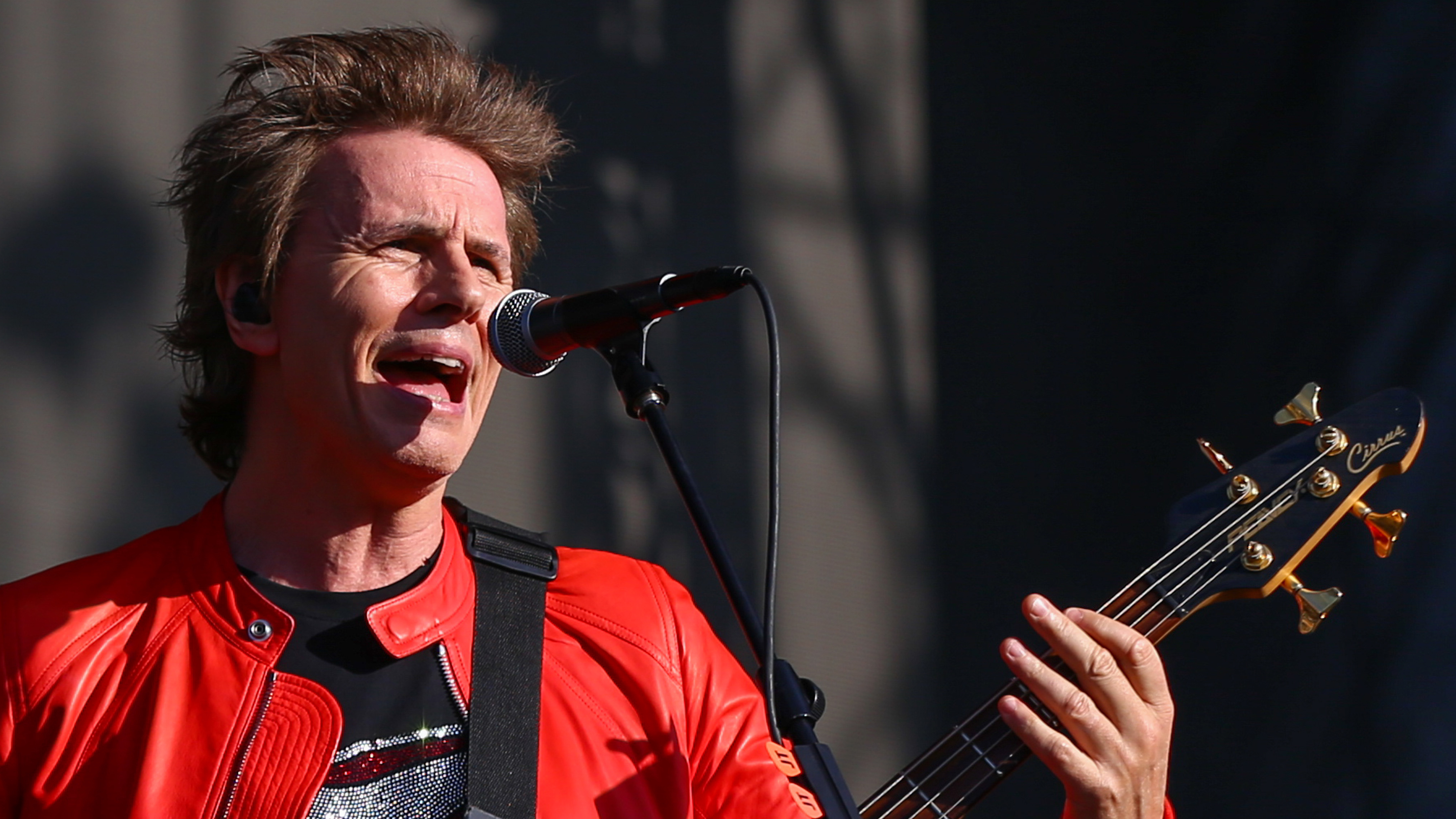
29. John Taylor
Penning and performing basslines for Duran Duran's world conquering hits, including Girls On Film, Rio, and Hungry Like The Wolf, John Taylor nailed technical runs while always serving the song.
He's often hailed as an underrated player, so it's about time that he was given his due.
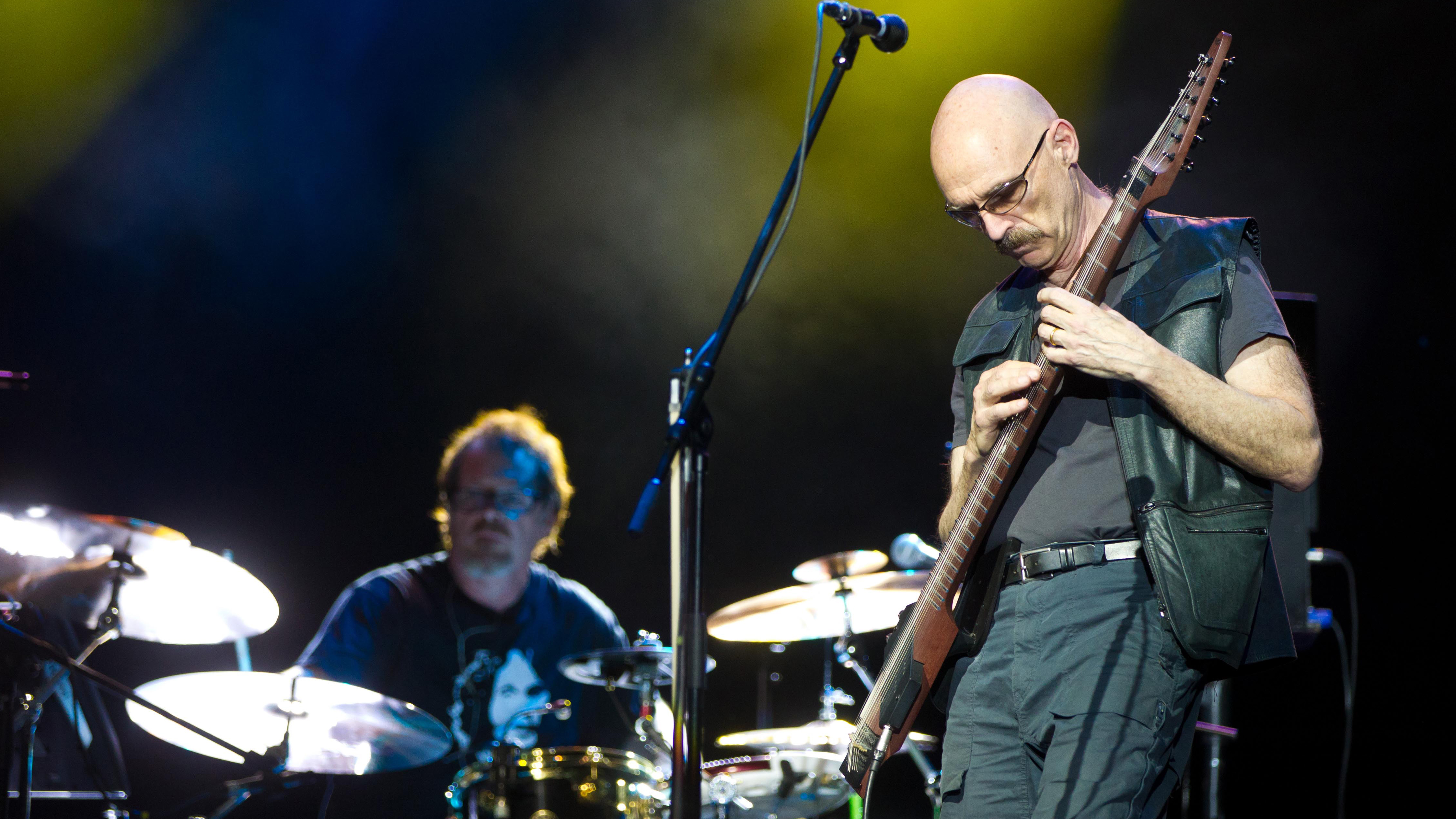
28. Tony Levin
A prominent session musician since the 1970s, Tony Levin has appeared on over 500 albums, among them releases by John Lennon, Cher, Lou Reed, Tom Waits and Dire Straits.
He's also served a long stint in Peter Gabriel's band, using the opportunity to develop his Chapman Stick technique, and remains one of the instrument's leading names.
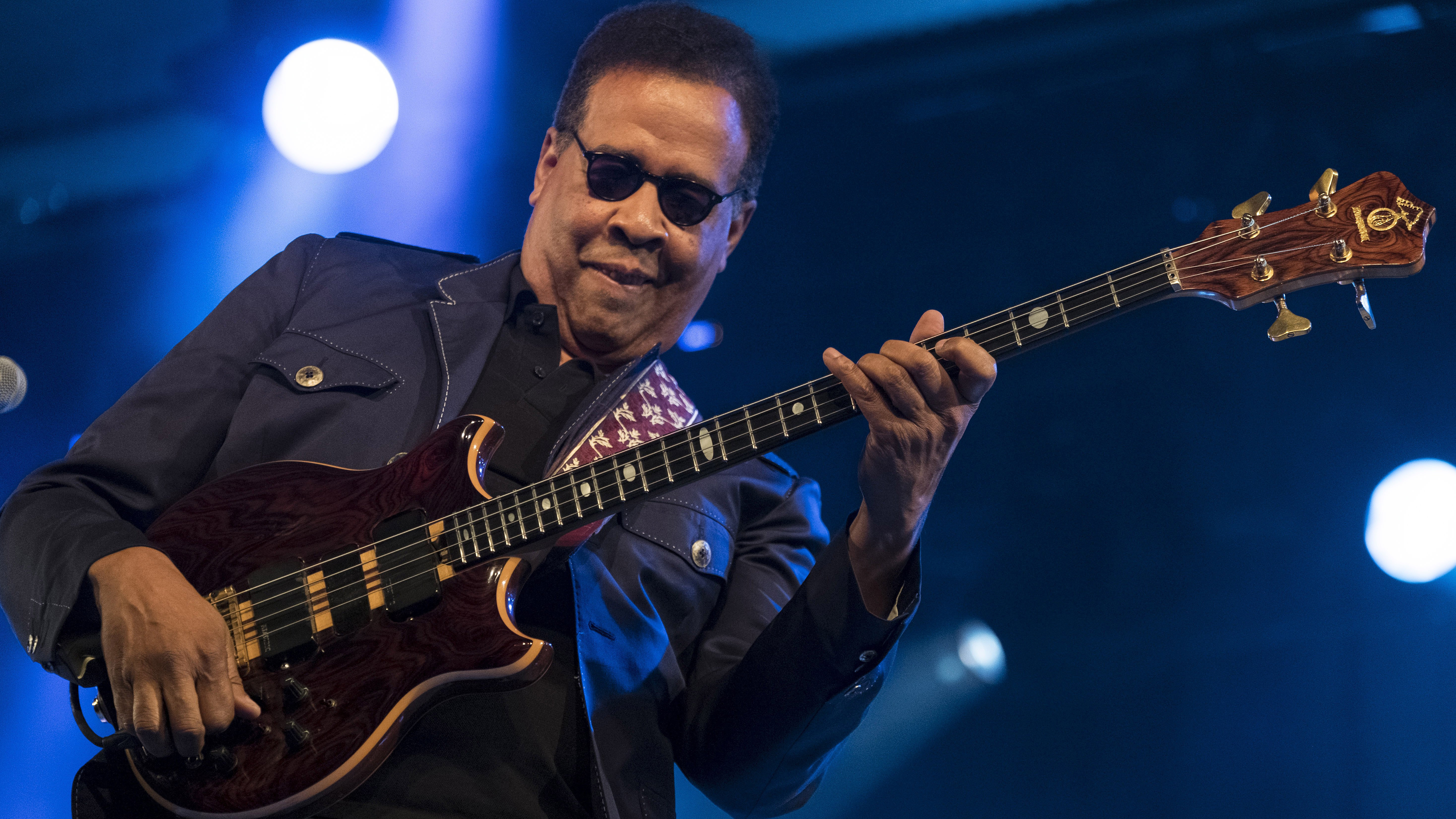
27. Stanley Clarke
Ah, the '70s. A time when men were men and bassists were going nuts for jazz fusion.
Stanley Clarke helped Return To Forever refine the jazz fusion sound - raising them up to be one of the era and genre's most prominent practitioners - while simultaneously developing his solo career on albums like School Days.
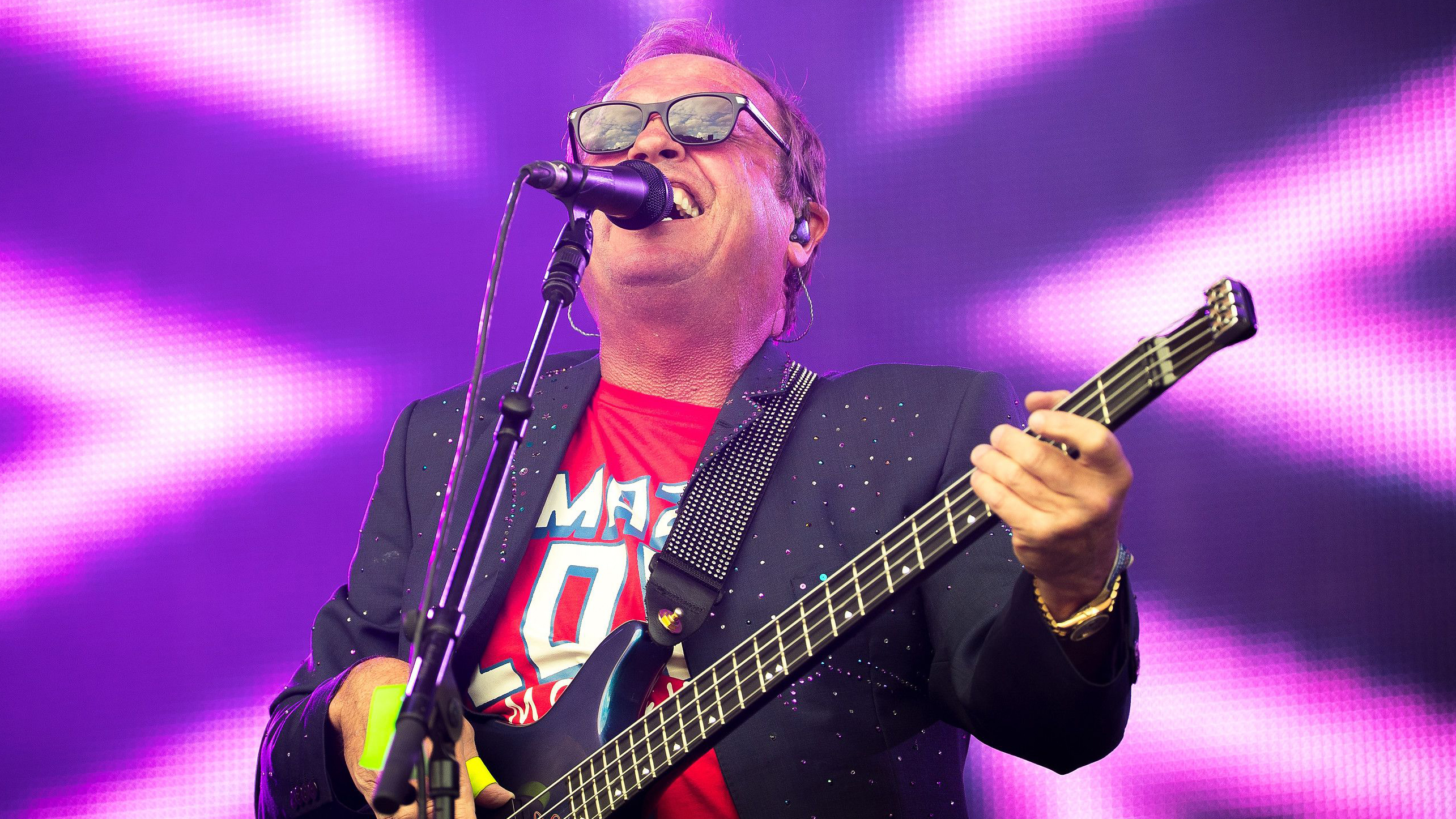
26. Mark King
The Isle Of Wight's most famous slapper is about as cool as a habanero pepper nestled inside a recently microwaved McDonald's apple pie, but few would dare to argue with the power of the Level 42 mainman's thumb.
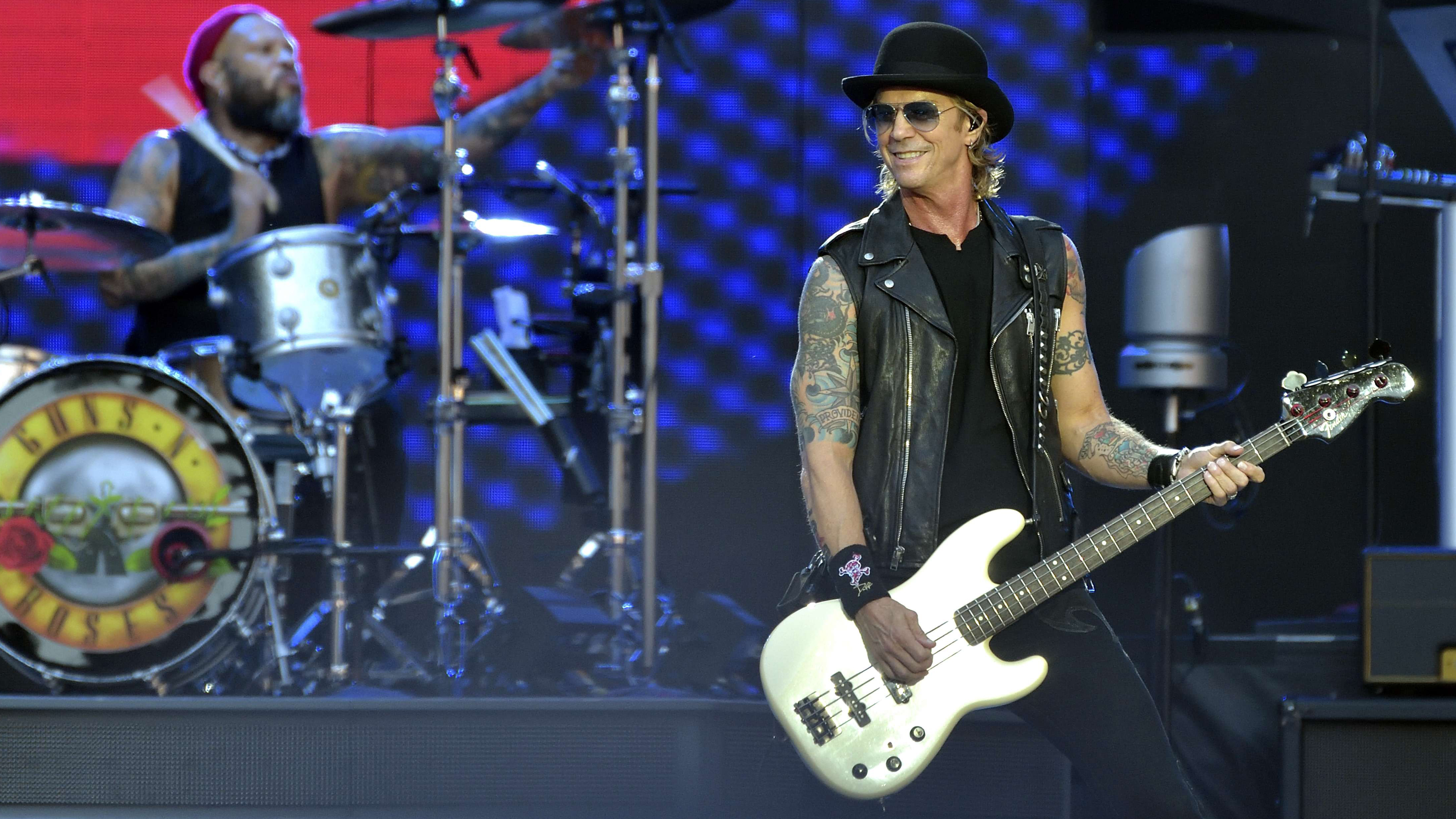
25. Duff McKagan
As one of the longest-serving members of the classic line-up of Guns N' Roses, Duff McKagan put in 12 years with the LA rockers from Appetite For Destruction to The Spaghetti Incident (and then some).
The band’s recent reunion (who’d have thunk it?) further cemented his place in rock bass history.
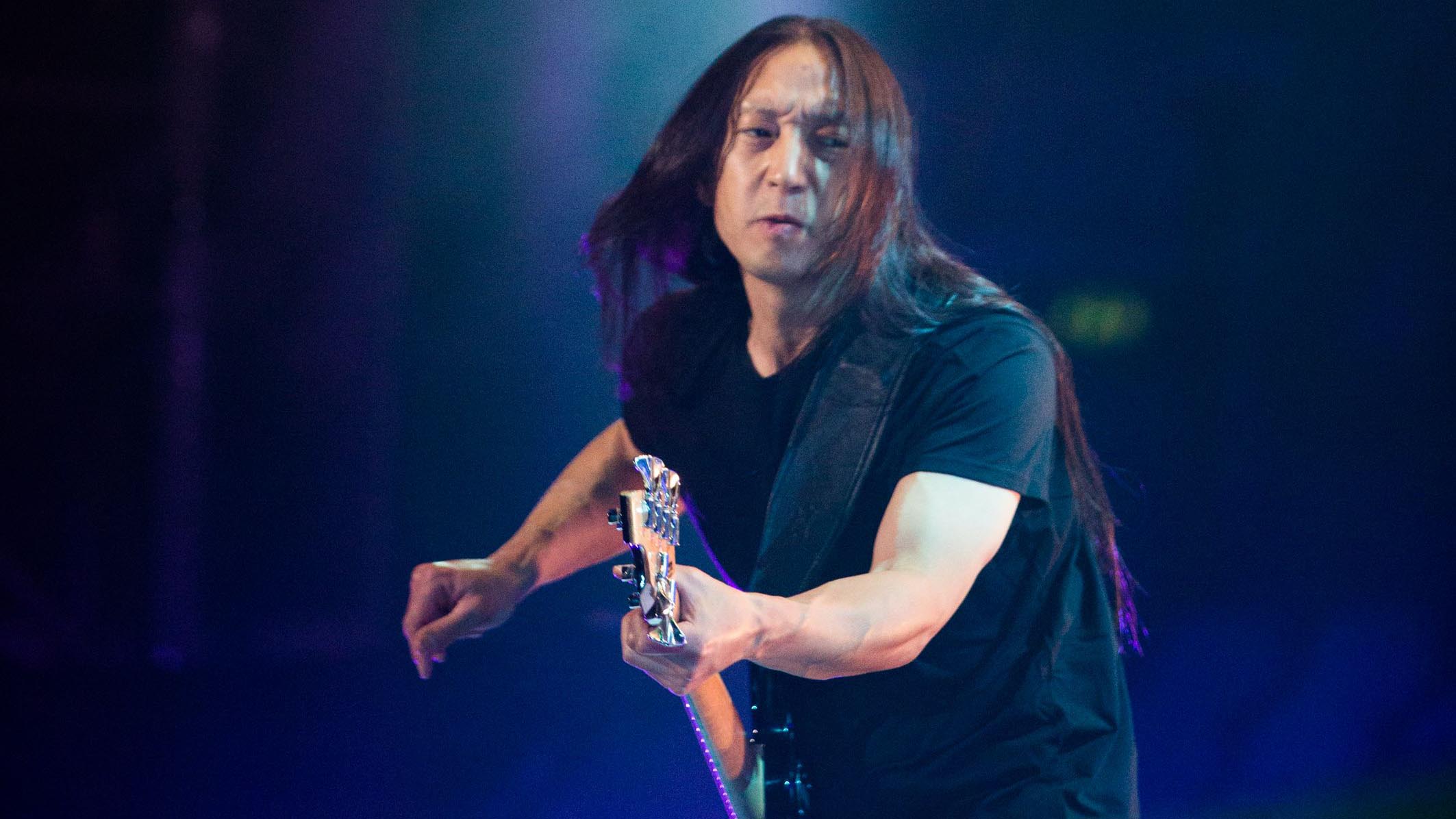
24. John Myung
A founding member of progressive metal superstars Dream Theater, Myung's talent is beyond question.
He's the longest serving member of the band, alongside guitarist John Petrucci, who we imagine helps him to keep his chops up...
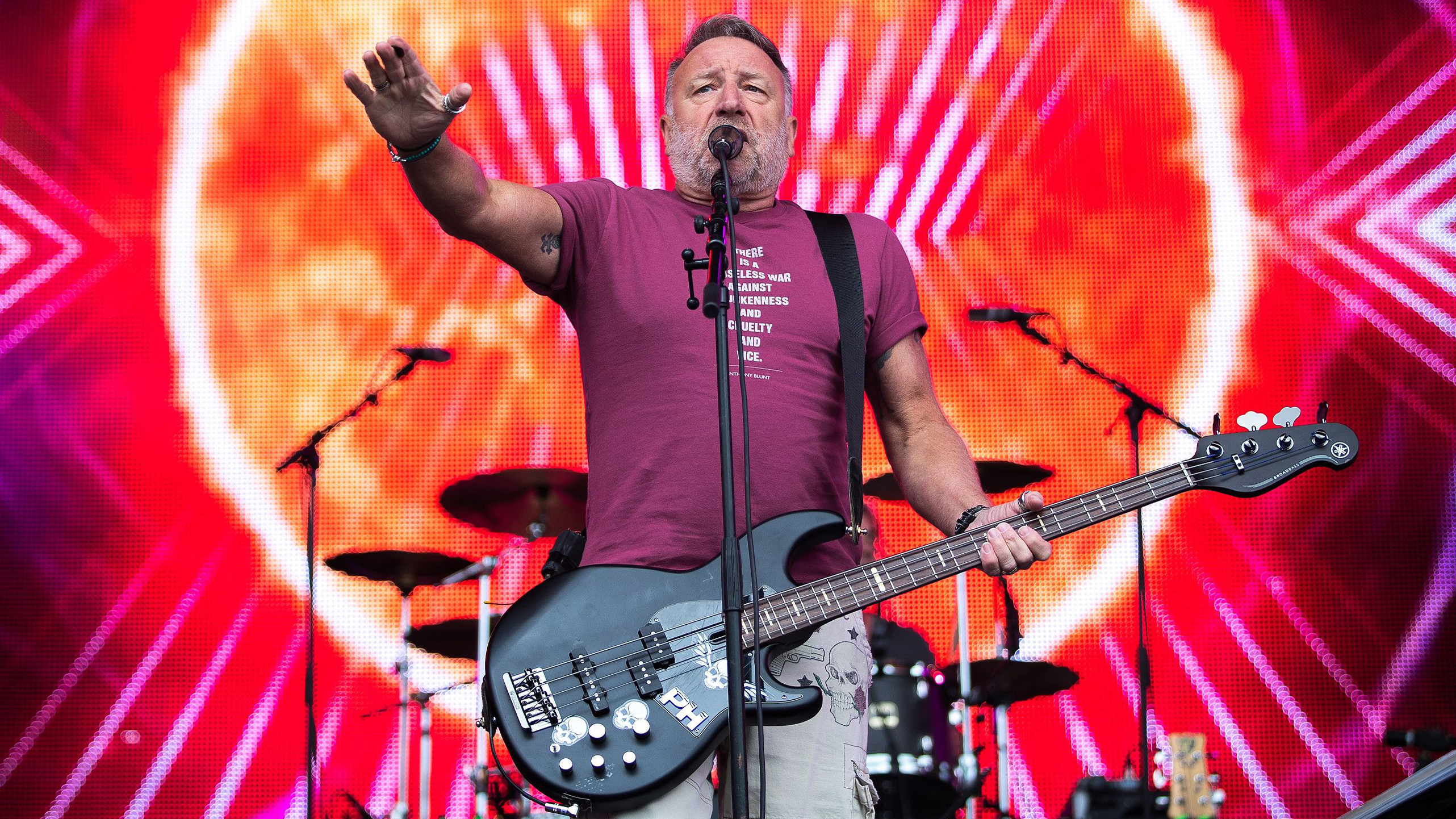
23. Peter Hook
Hooky has never played by the rules, and new wave heroes Joy Division and New Order were shaped by his maverick lead-bass approach.
Nobody explored the dusty end of the fretboard quite so avidly as Hook, something that apparently charts back to his first experiences struggling to be heard through a cheap speaker next to guitarist Bernard Sumner. His music was all the richer for it.
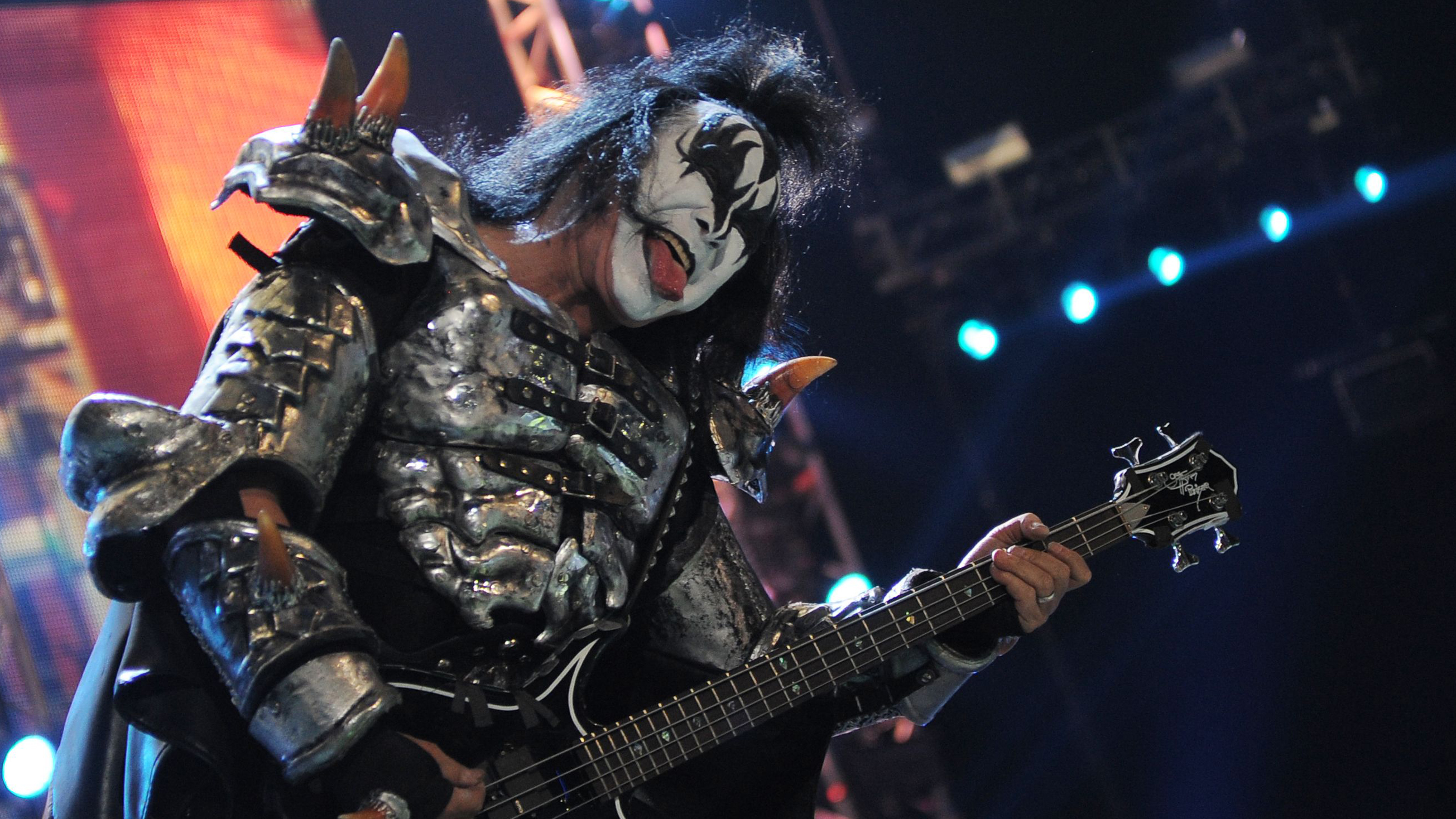
22. Gene Simmons
What makes a bassist great? Simmons may not be the most technically gifted player on this list, but few here could beat him when it comes to the live arena and performance.
The Demon has also famously proven to be something of a marketing genius to boot...
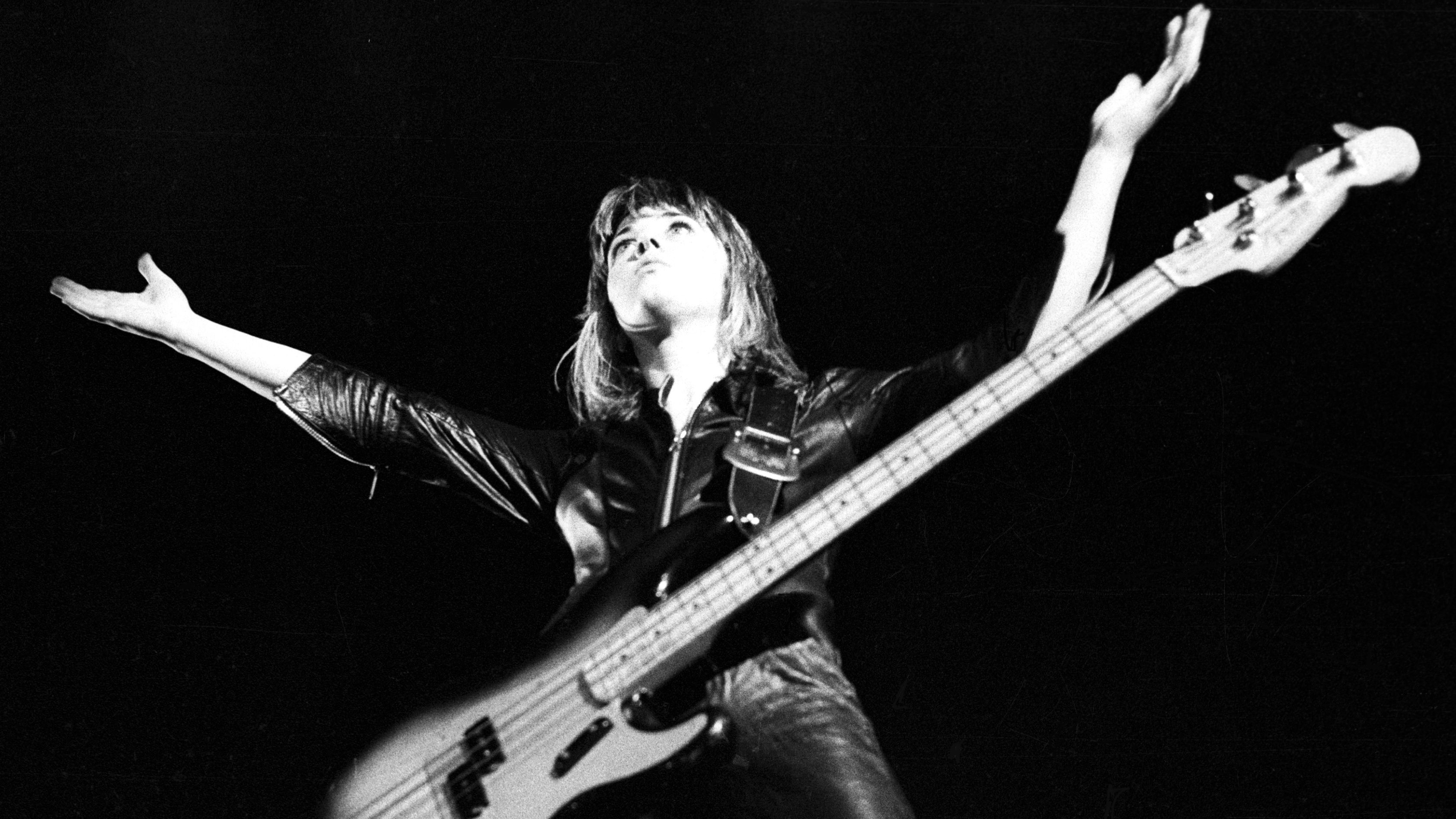
21. Suzi Quatro
The wild one herself, Quatro was hugely important as a female role model in bass playing and has served up her fair share of tasty runs and octave work over a 50-year-plus career.
Suzi’s path was settled early on, when her dad generously gave her a 1957 Fender P-Bass back in 1964 - we should all be so lucky.
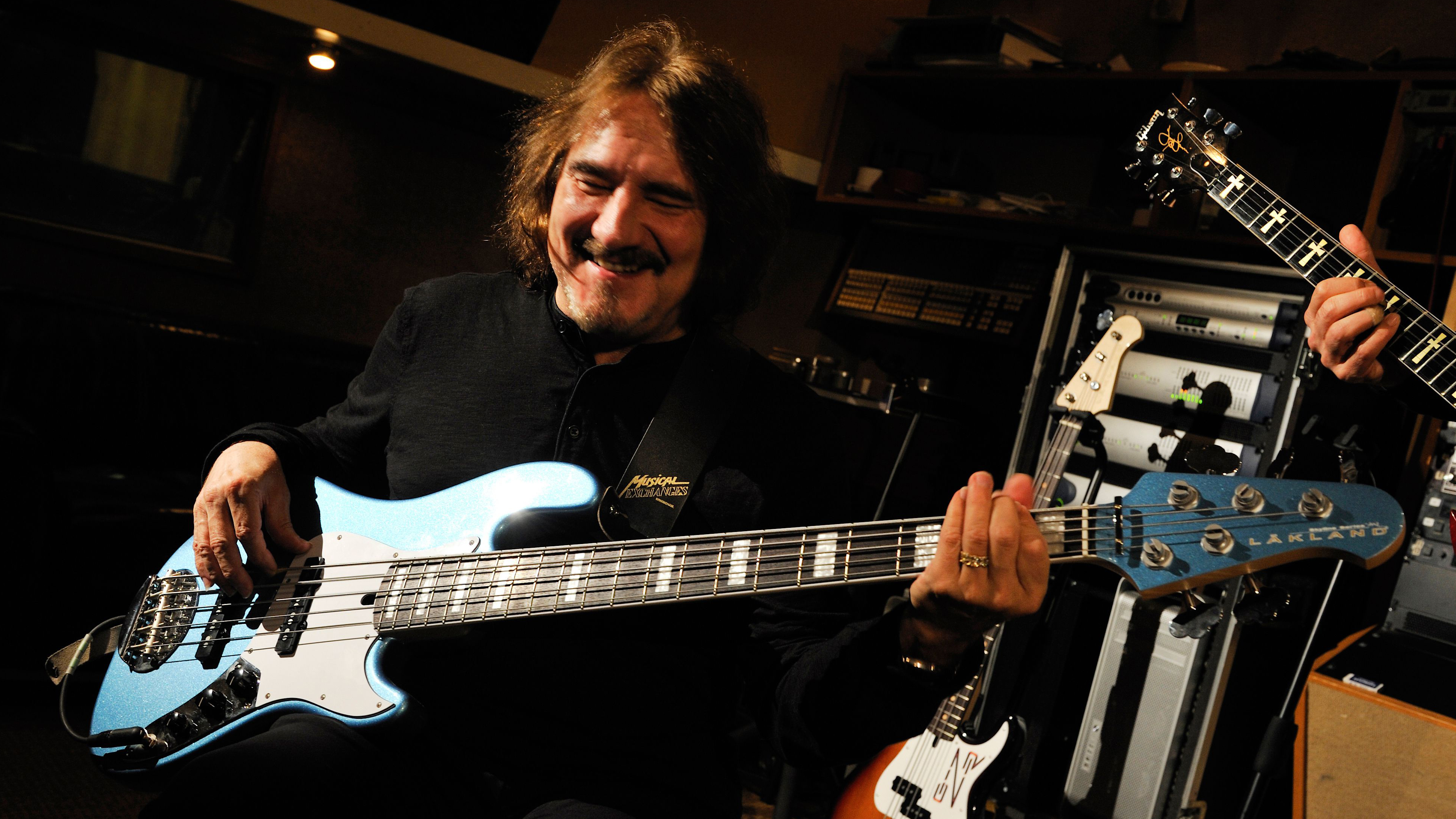
20. Geezer Butler
Initially a rhythm guitarist in early bands Polka Tulk and Rare Breed, formed with his mate John soon-to-be-Ozzy Osbourne, Geezer switched to bass in the early days of Sabbath.
Not only did he go on to make a name for himself as the band's lyricist, his bass work saw him make several innovations, becoming one of the first bassists to use a wah pedal and also to down-tune.
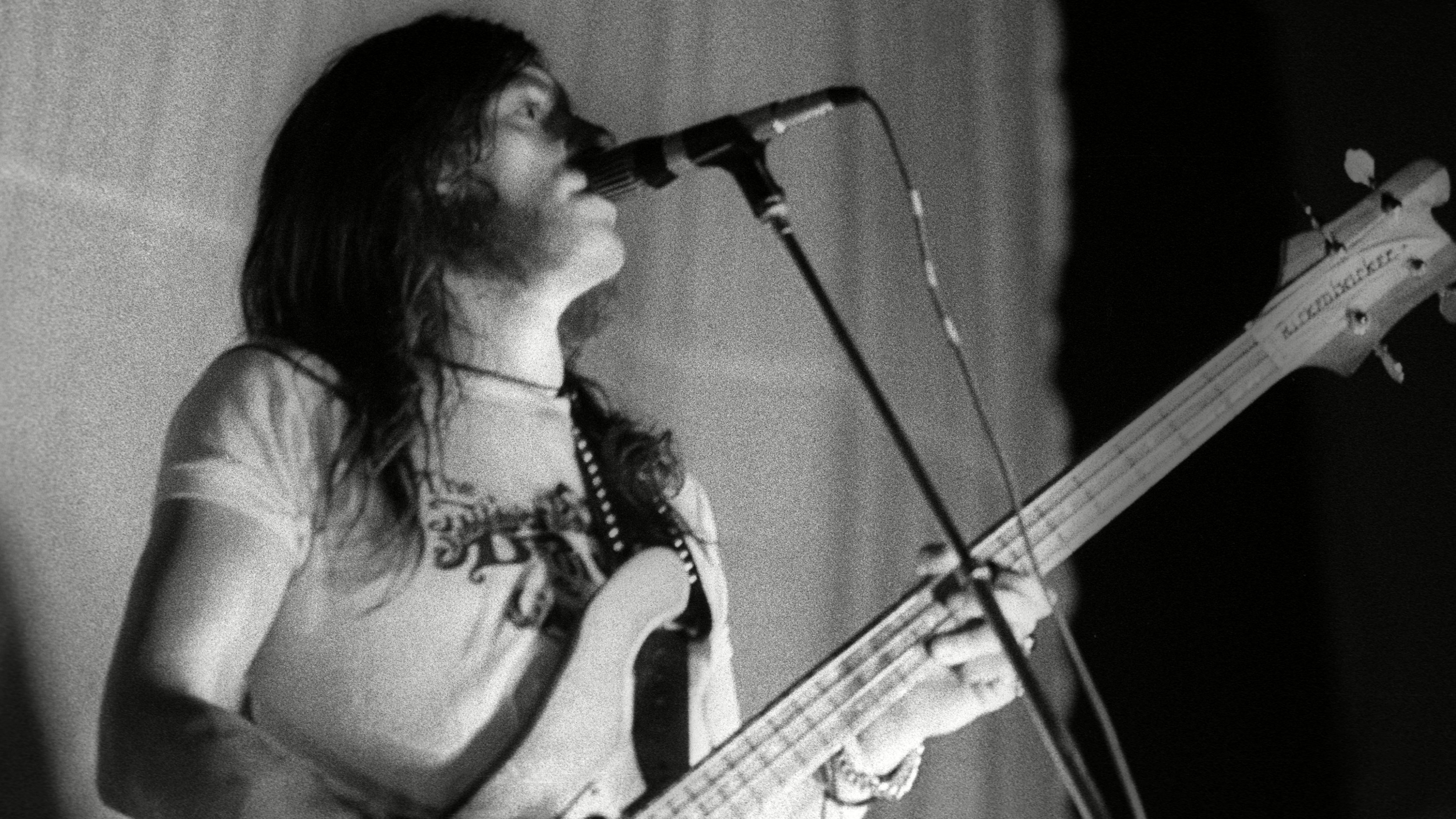
19. Lemmy
Are you cooler than Kilmister? No, of course you're not.
He may have been more famed for his rock-ruined voice, facial features and lifestyle choices than his actual bass playing, but Lemmy's 'everything louder than everyone else’ approach to rock 'n' roll got the job done. A bonafide bass icon, and sadly missed.
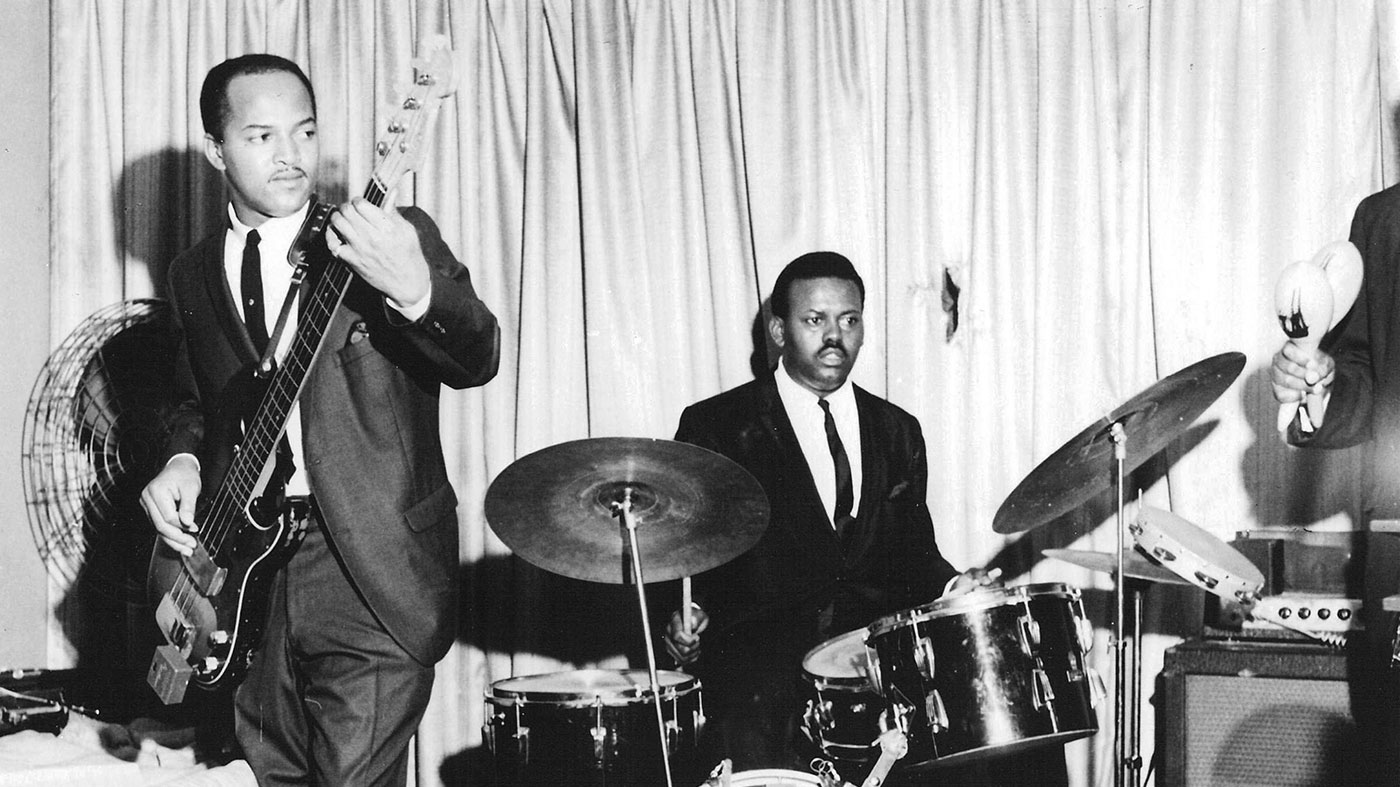
18. James Jamerson
The most influential electric bass player of all time, and the man who revolutionised the role of the bass guitar in pop should, by rights, be a hell of a lot further up this rundown.
Throughout the 1960s, Jamerson performed, uncredited, on hundreds of hit singles as part of Motown's legendary house band, The Funk Brothers. It wasn't until 1971 when Marvin Gaye's Whats Goin' On sleeve notes listed him as 'the incomparable James Jamerson' that his name was even featured on a major Motown release.
Jamerson's 1962 sunburst Fender Precision bass was strung with heavy flatwounds and generally played with just the index finger of his right hand, which became nicknamed 'The Hook'. His melodic, syncopated basslines are peerless in the canon of recorded popular music.
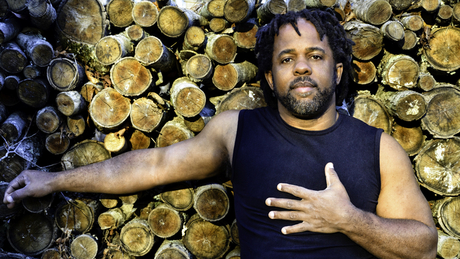
17. Victor Wooten
Five-time Grammy winner Victor Wooten is a monster player who regularly takes the bass guitar on voyages of discovery as far away as can be from its traditional position in pop music.
Our annual visit to the NAMM show wouldn't be complete without Victor blowing our minds with his outrageous dexterity.
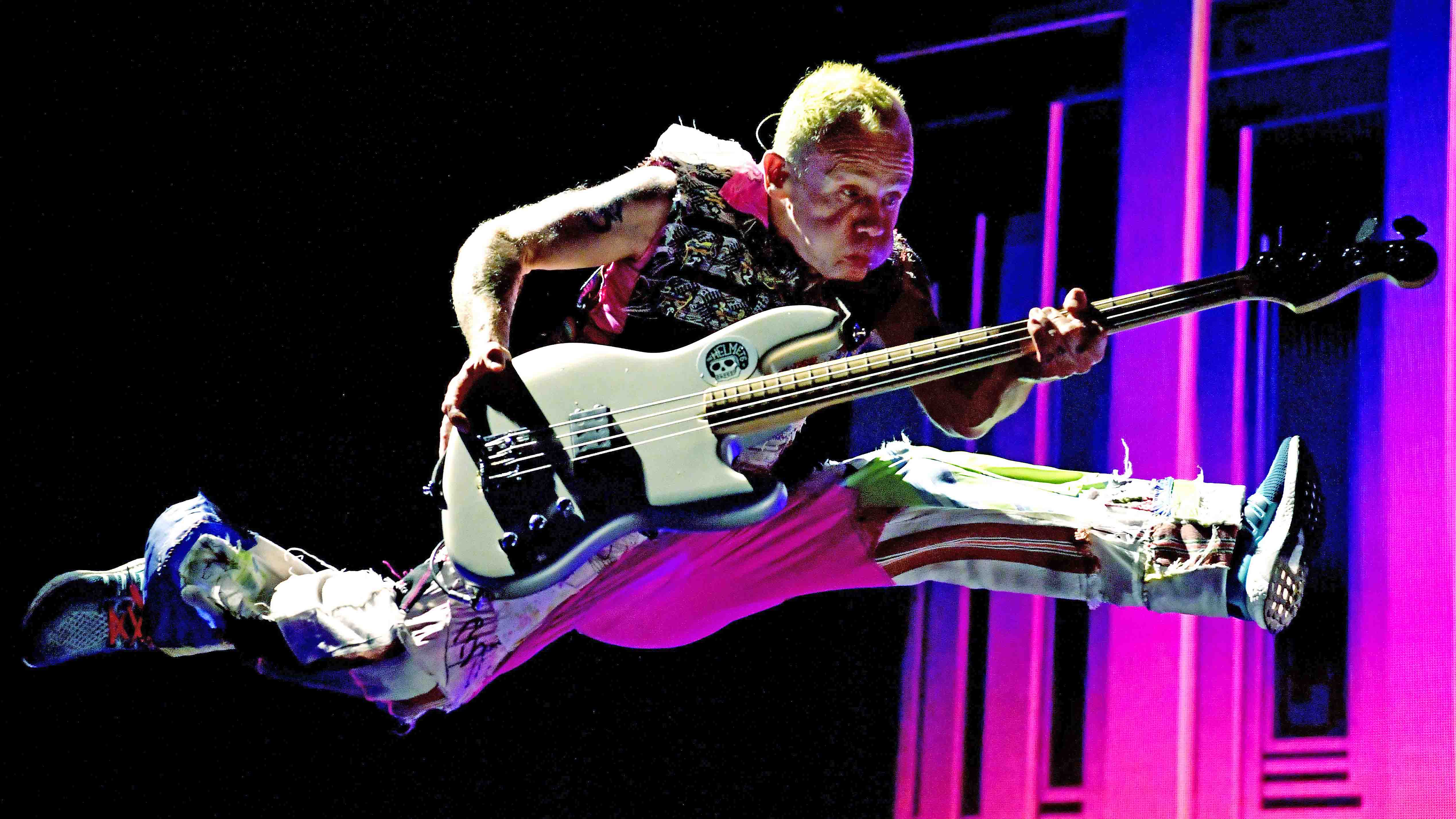
16. Flea
Michael Peter Balzary, better known as Flea, has proven over time with the Red Hot Chili Peppers that whether it's funked-out slap or melodic minimalism that's required, he can nail it with precision and style.
Plus, with the launch of his Fleabass venture, Mr Balzary has sought to spread the love, providing aspiring bass superstars with high-quality instruments at reasonable prices.
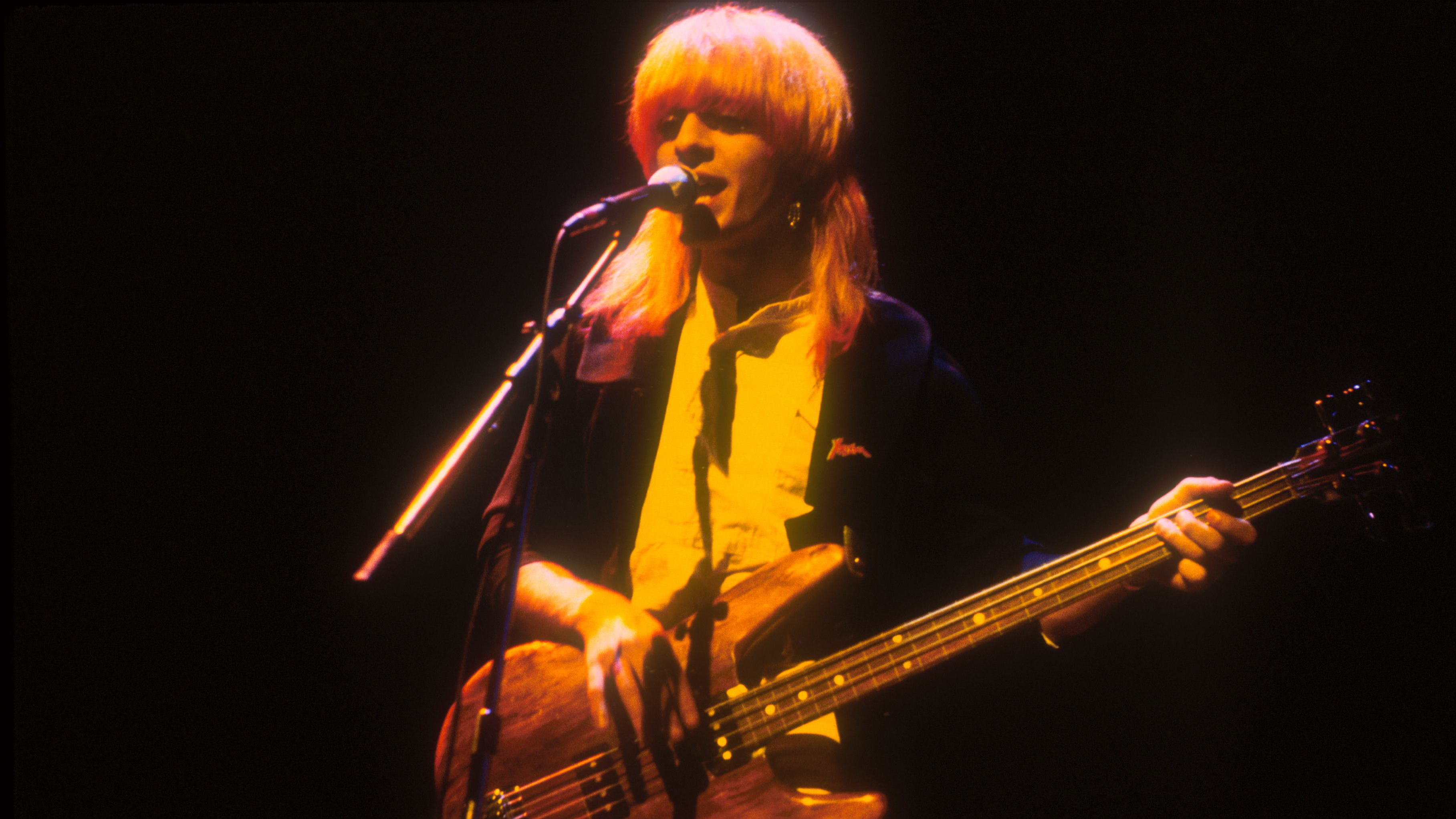
15. Mick Karn
Having an instrument stolen is one of the more devastating things that can happen to a musician, unless you're Mick Karn.
When he had his bassoon nicked as a young man, he bought a bass guitar for £5 and went on to form Japan with David Sylvian. Despite being self-taught, or perhaps because of it, he quickly developed a distinctive style, particularly with his fretless bass work.
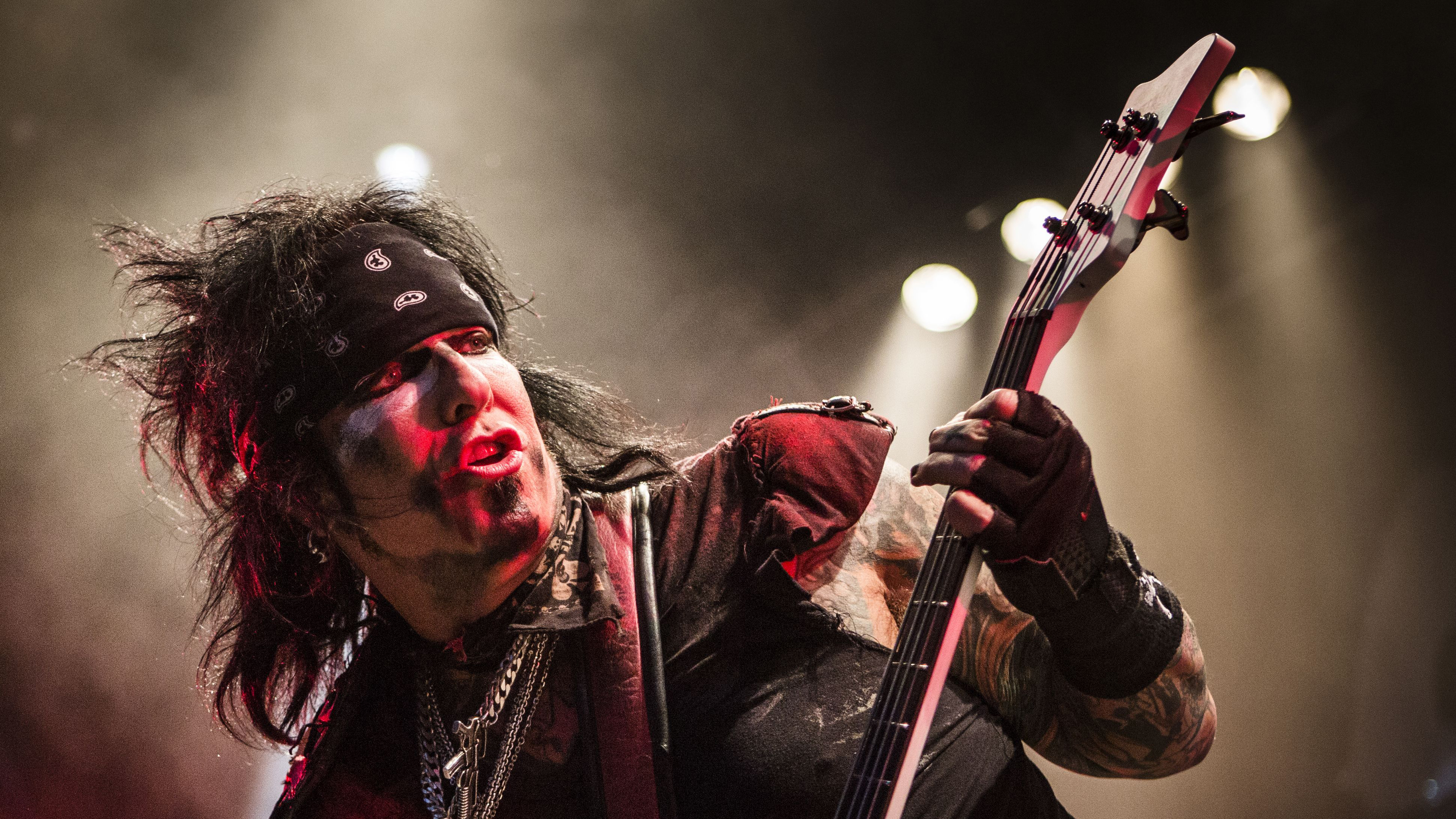
14. Nikki Sixx
He may not be known for his virtuosity, but Sixx’s basslines with hair-metallers Mötley Crüe are as solid as they come, and he’s responsible for a ton of the band’s classic tunes. Oh, and he’s the only bassist on this list notable for wielding a flamethrower-equipped four-string onstage. Legit.
These days, Sixx is famed for his intimate Heroin Diaries memoir and Sixx Sense radio show, as well as work with supergroup Sixx:AM. A regular rock raconteur.
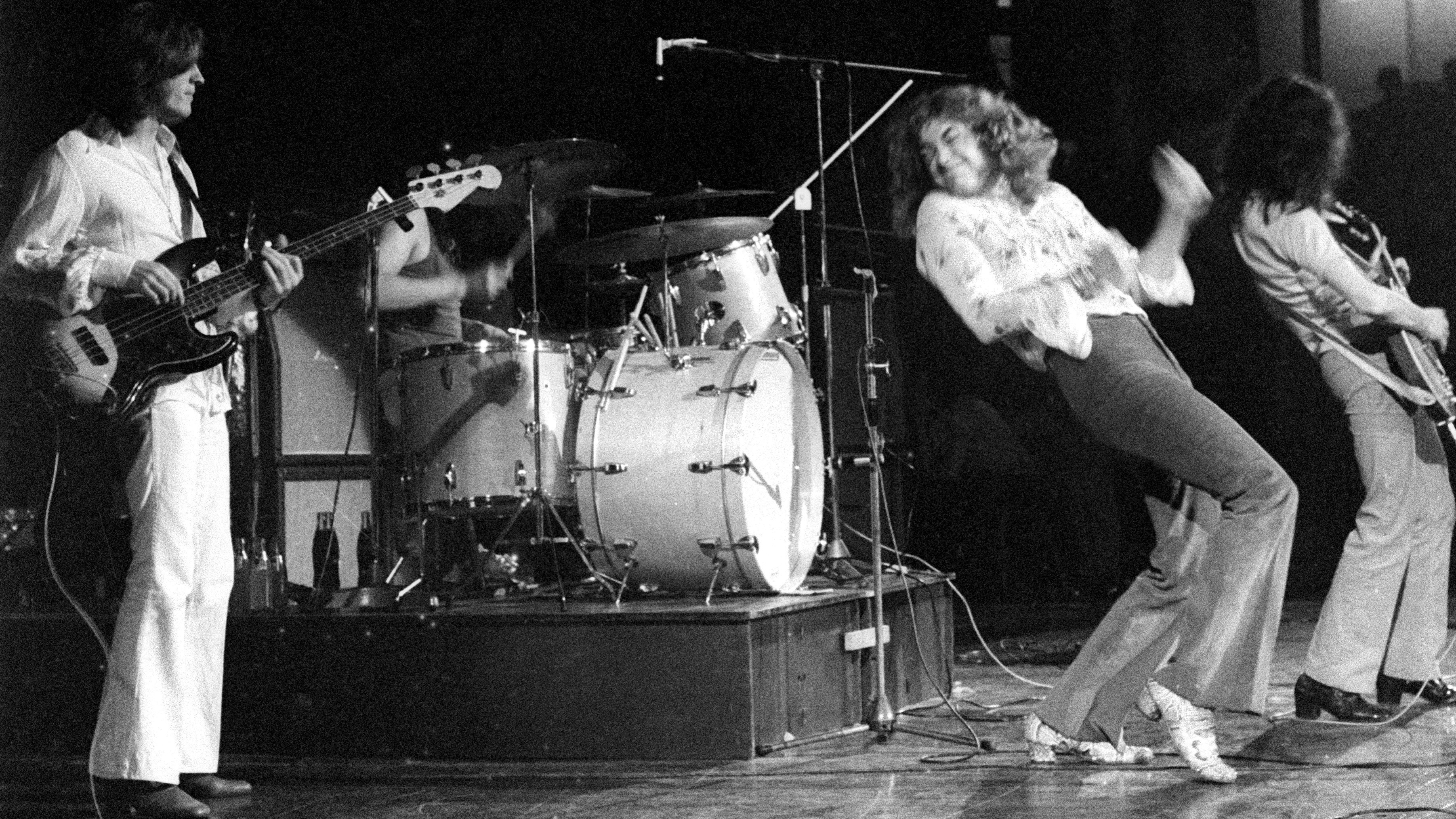
13. John Paul Jones
What can we say about one half of the greatest rock rhythm section in history?
JPJ's body of work with Led Zeppelin is staggering, where he could swing from blues swagger to rock frenzy at the drop of Jimmy Page’s violin bow.
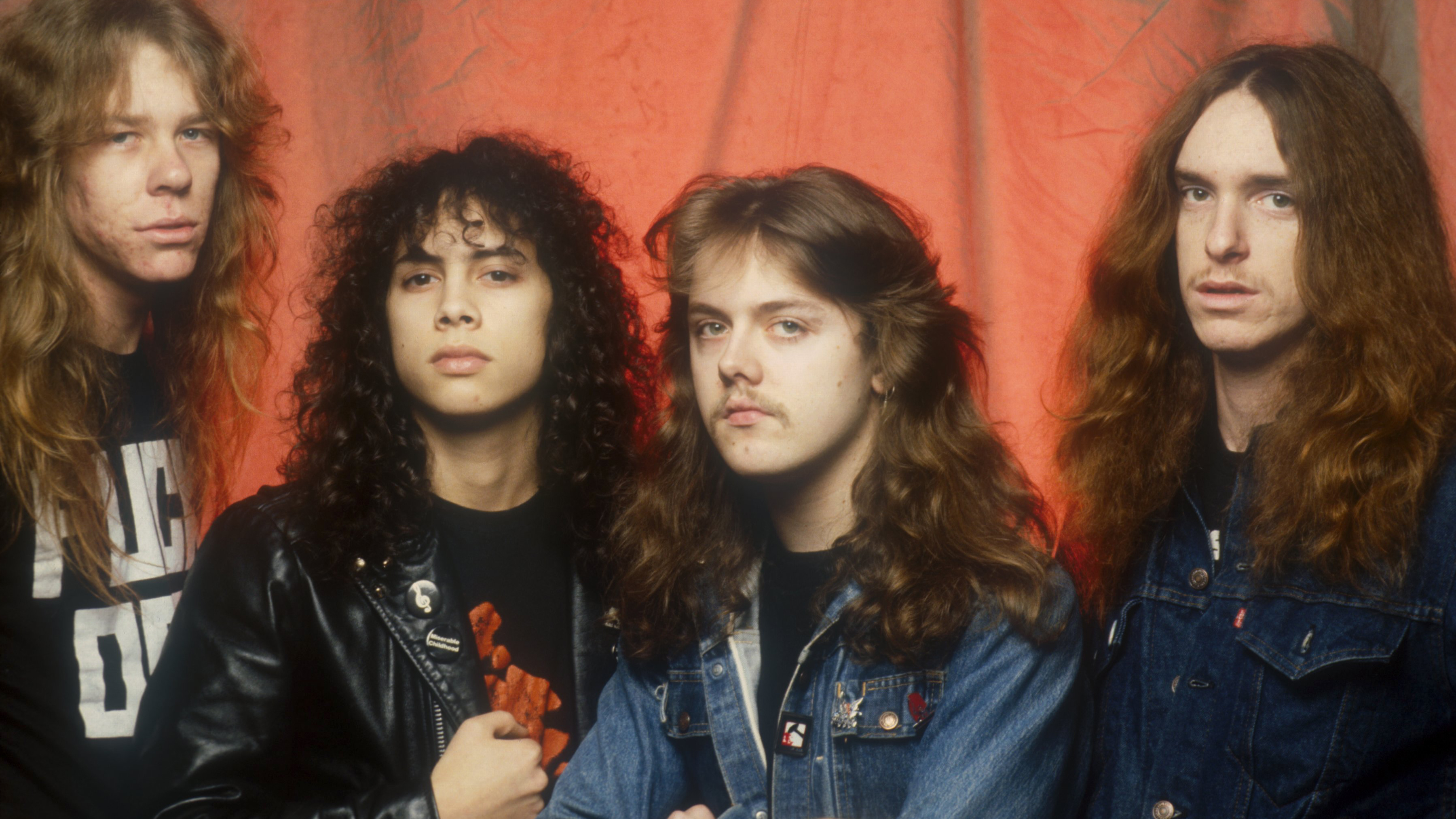
12. Cliff Burton
On 27 September 1986, the music world lost a huge talent. Aged just 24, Cliff Burton and his Metallica bandmates had already recorded their defining statement and arguably the greatest metal album of all time in the shape of Master Of Puppets.
Burton's unique lead bass playing is a highlight on the incredible eight-minute instrumental Orion from that album, but his influence can be felt all over Metallica's first three genre-defining LPs.

11. Paul McCartney
As early as The Beatles' 1963 debut LP Please Please Me, it was apparent that Paul McCartney was a talented bass player with ambition way beyond root notes.
At his creative peak just a few short years later, Macca was not only writing some of the greatest songs in history, but influenced by the likes of James Jamerson, he was also contributing wonderfully imaginative basslines to the most important catalogue of recordings ever committed to tape.
Everyone in this top 30 is a gifted musician, but Paul McCartney changed the world.
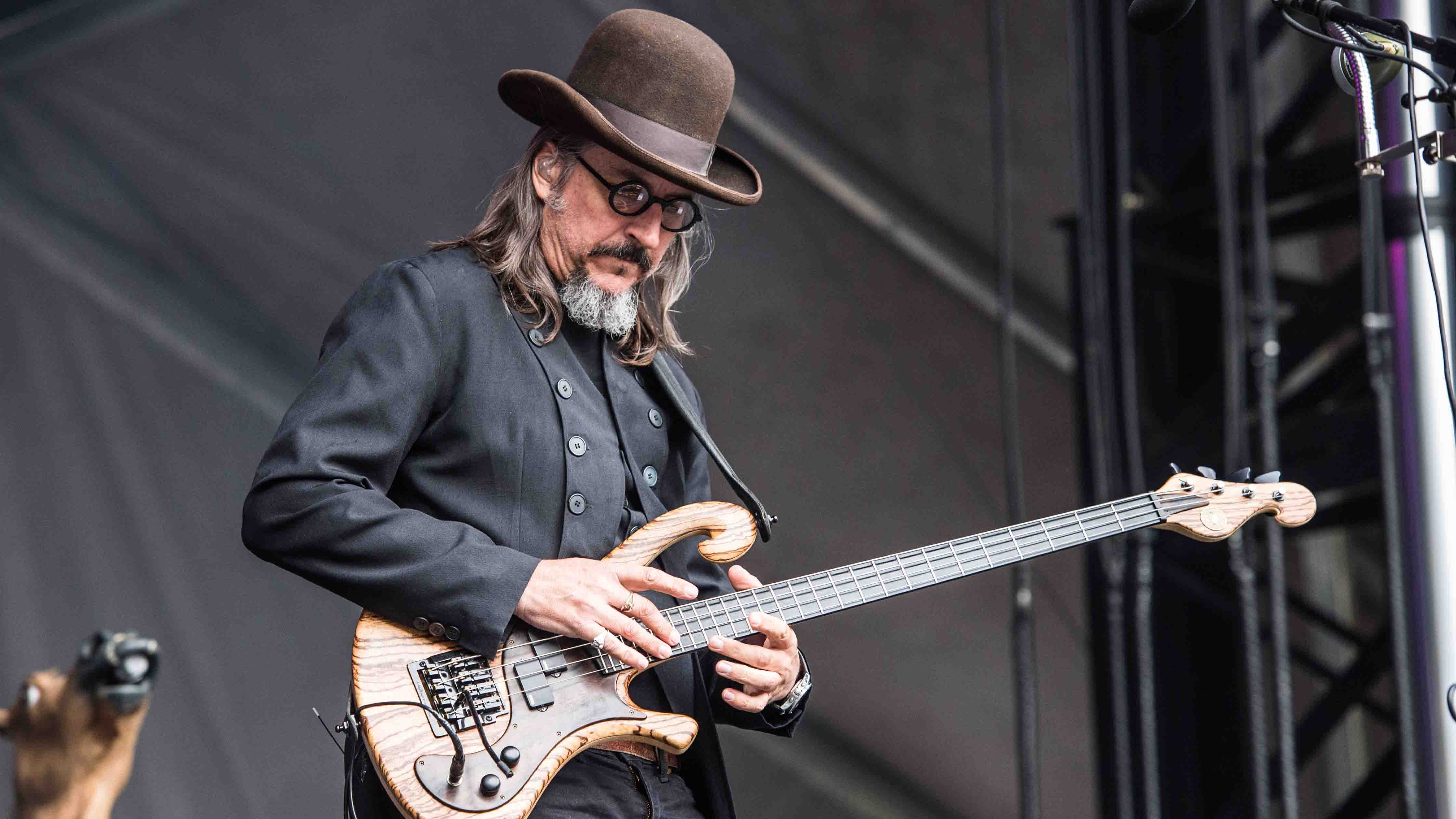
10. Les Claypool
Primus were one of the most left-field acts to break into the American rock mainstream in the 1990s.
At the heart of their marvellously skewed sound is Les Claypool's dirty, intricate bass that he slaps, taps, tingles and mangles like nobody else.
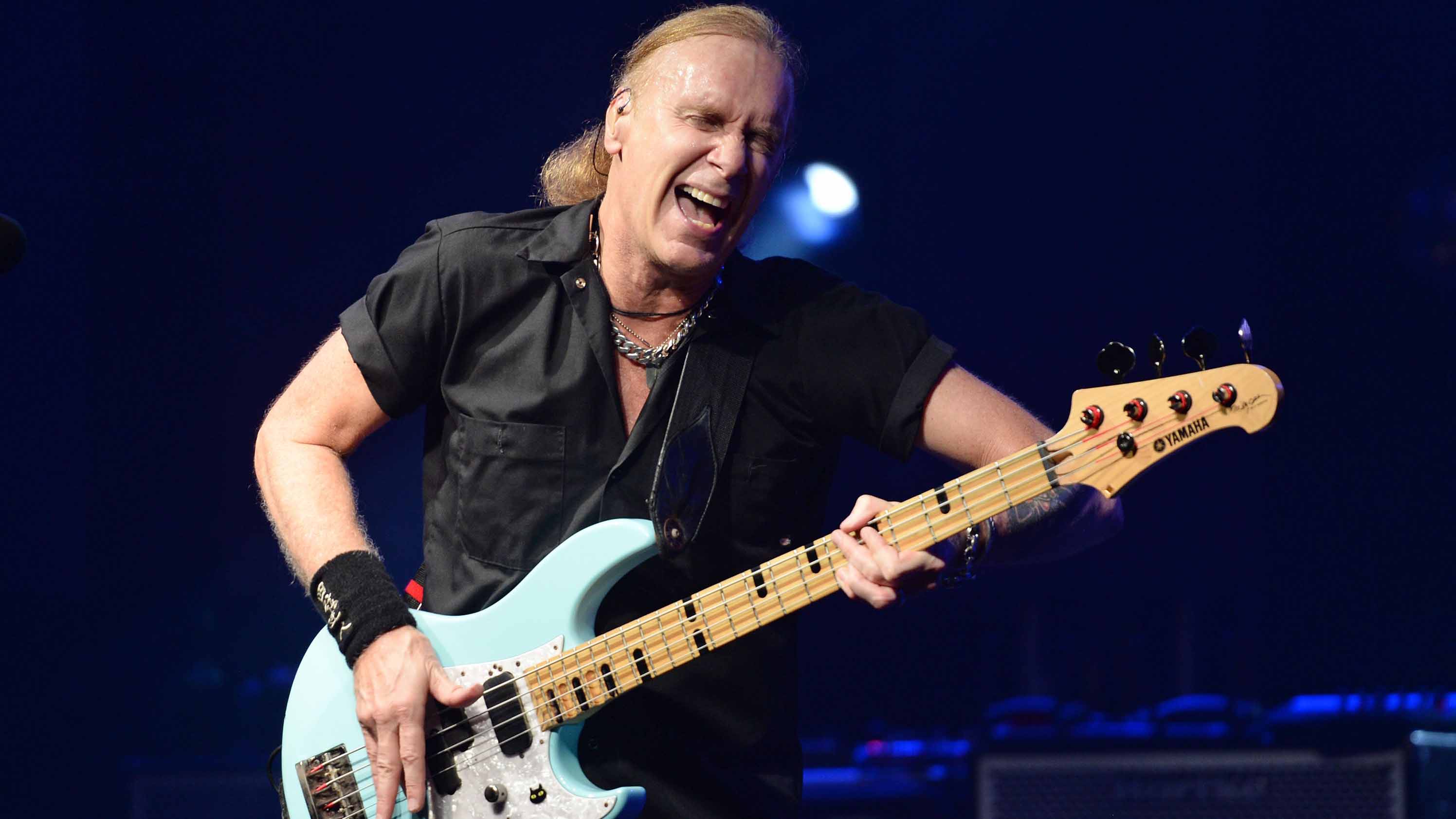
9. Billy Sheehan
Whether it's for his work with Steve Vai, Mr Big or David Lee Roth, his numerous 'Best Rock Bass Player' awards or his incredible chops, there was no way that our poll wouldn't see Sheehan scoop bucketloads of your votes.
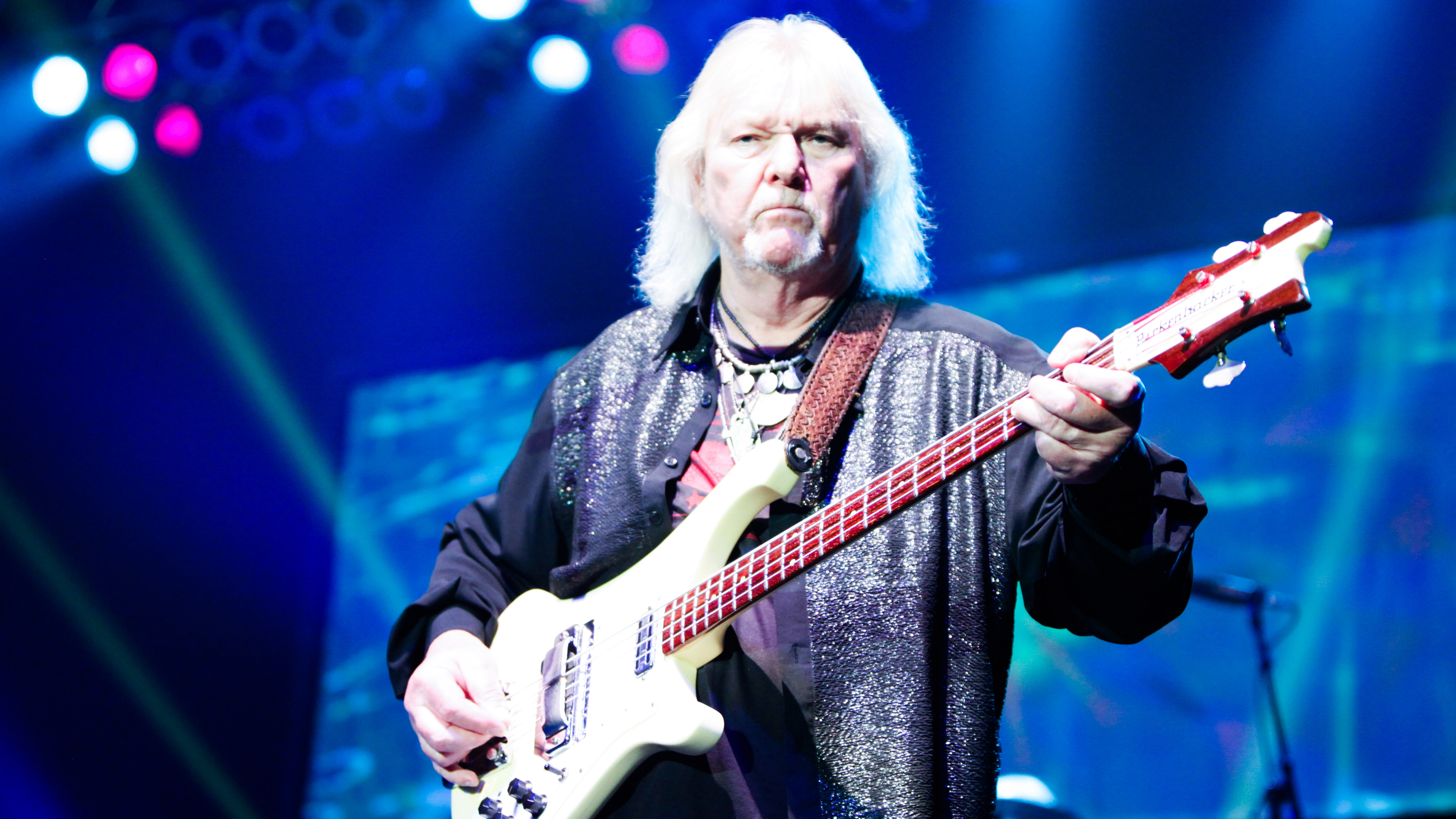
8. Chris Squire
Yes legend Chris Squire was synonymous with the dynamic growl of his rare export model Rickenbacker RM1999, a sound that became been a key feature of his band's output since their 1969 debut.
Rickenbacker would later honour Squire with the 4001CS signature model, its body and neck shape slightly tweaked to the Yes man's specifications.
A hugely influential player with an inimitable tone, Chris Squire was a prog icon.
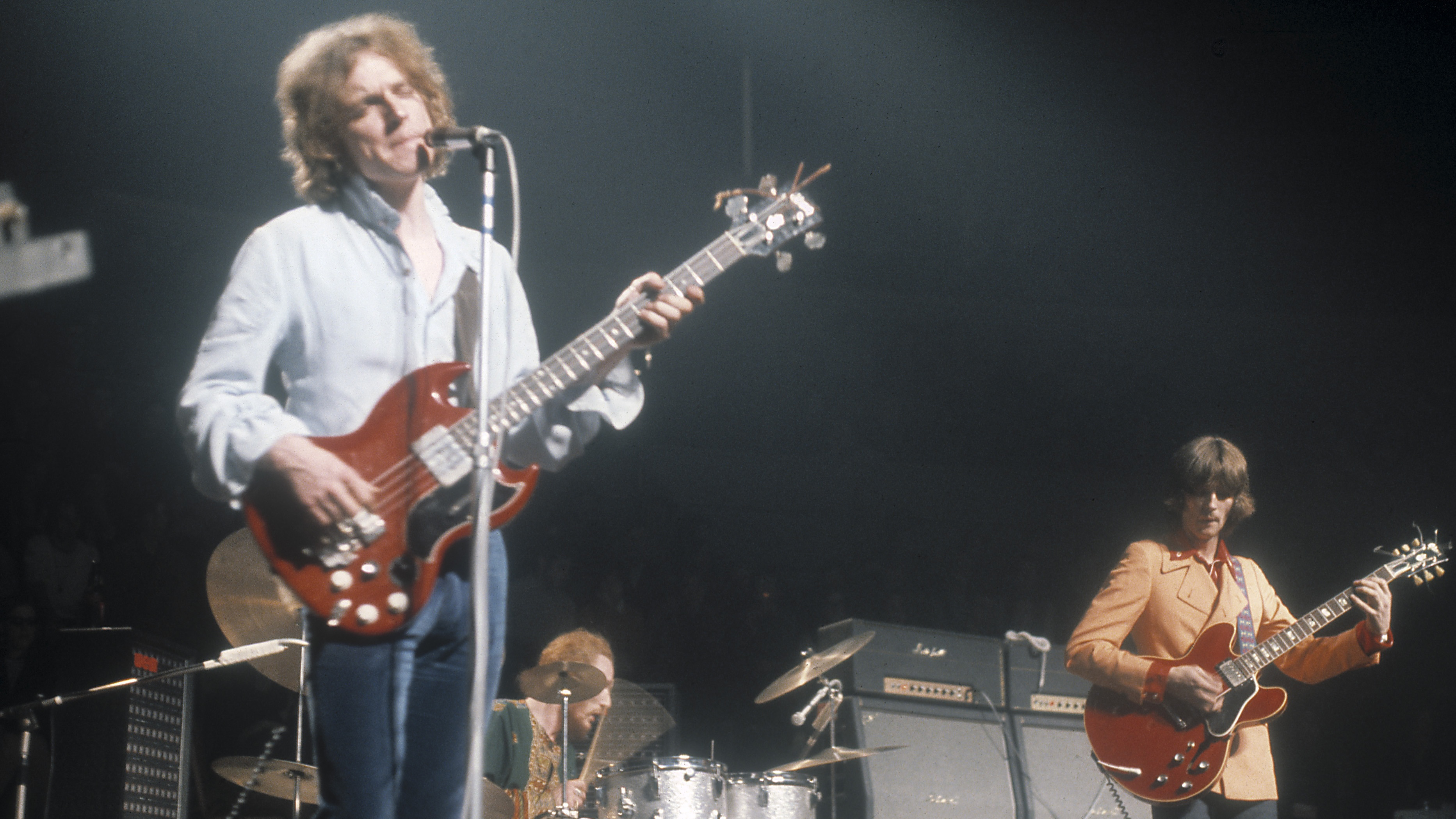
7. Jack Bruce
Although you can measure his wide-ranging, varied career in decades, it's still the two-year period between late 1966 and November 1968 that defines Jack Bruce.
Cream's blend of heavy blues, pop and psychedelia produced some of the most revered music of the period, with Bruce's memorable basslines and Gibson EB-3 at its heart.
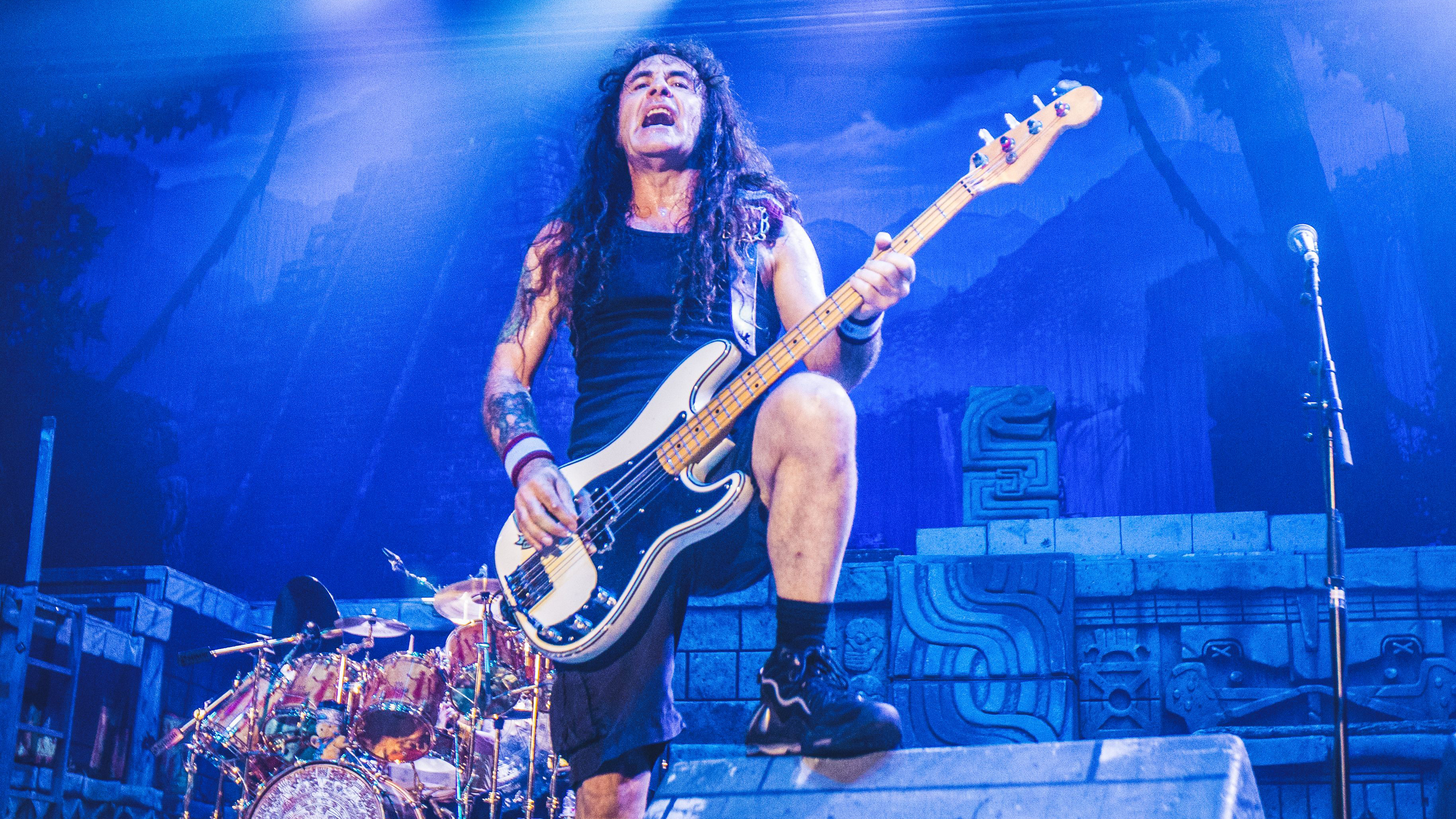
6. Steve Harris
Steve Harris has been the bass player, principal songwriter and band leader in Iron Maiden since 1975.
The galloping cavalry charge of his fingers across the flatwound strings of his Precision Bass is constantly evocative of the blood and thunder of his lyrics, but quite simply, without 'arry, there would be no Iron Maiden.

5. JJ Burnel
Perhaps only rivalled by The Jam's Bruce Foxton as the new wave bass hero, The Strangler's JJ Burnell's chunky intro to Peaches is one of the most easily identifiable basslines of the era.
A similar tone can be heard on No More Heroes, achieved by using a pick and playing close to the bridge.
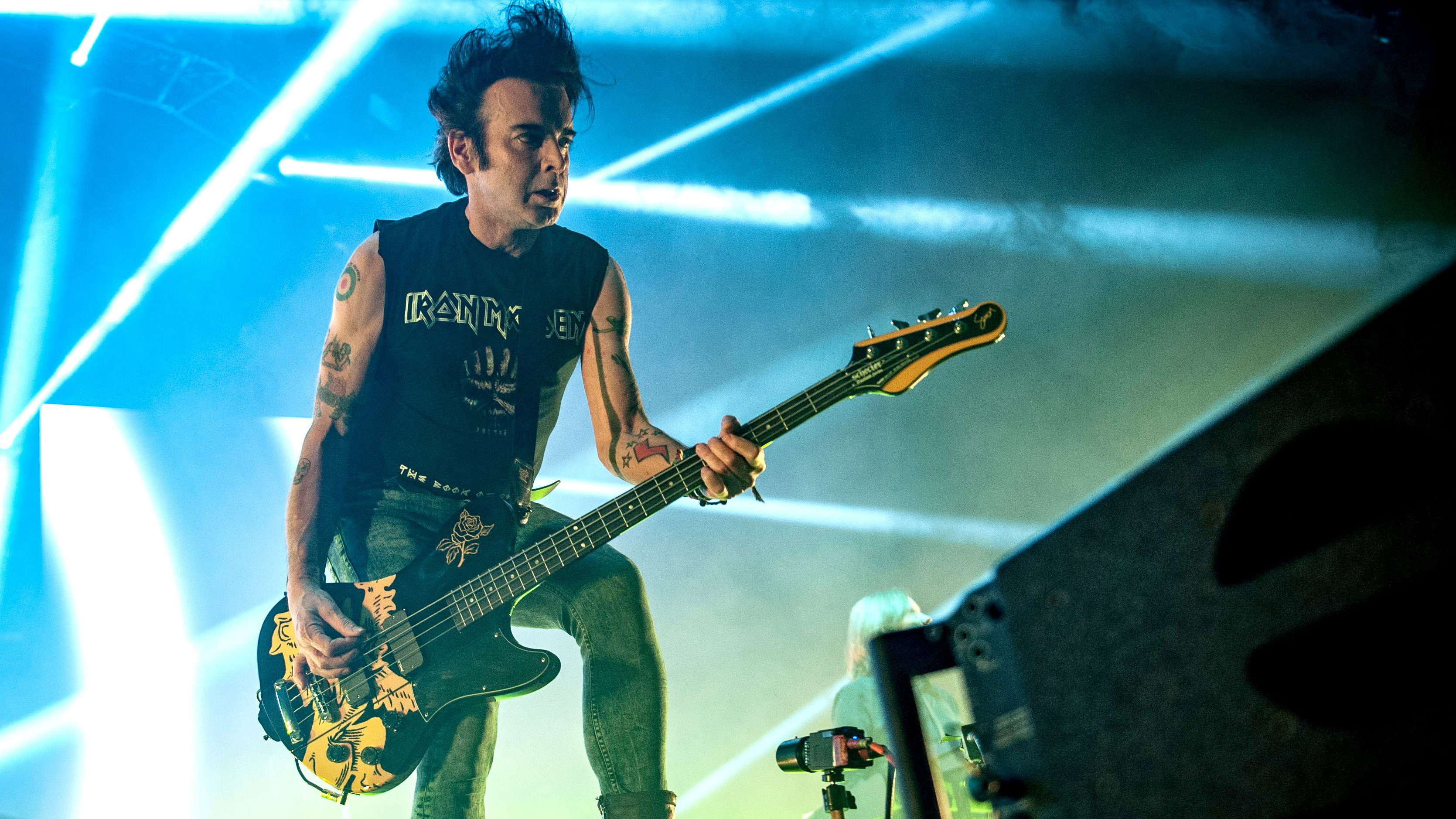
4. Simon Gallup
The man behind some of the finest post-punk basslines ever committed to record, Simon Gallup joined The Cure in 1979 and recorded The Dark Trilogy of albums (Seventeen Seconds, Faith and Pornography) before getting into a fist fight with Robert Smith and leaving the band for two years in 1982.
Since his return in 1984 they've been firm friends, something probably aided by his amazing lines on the likes of A Forest and Close To Me.
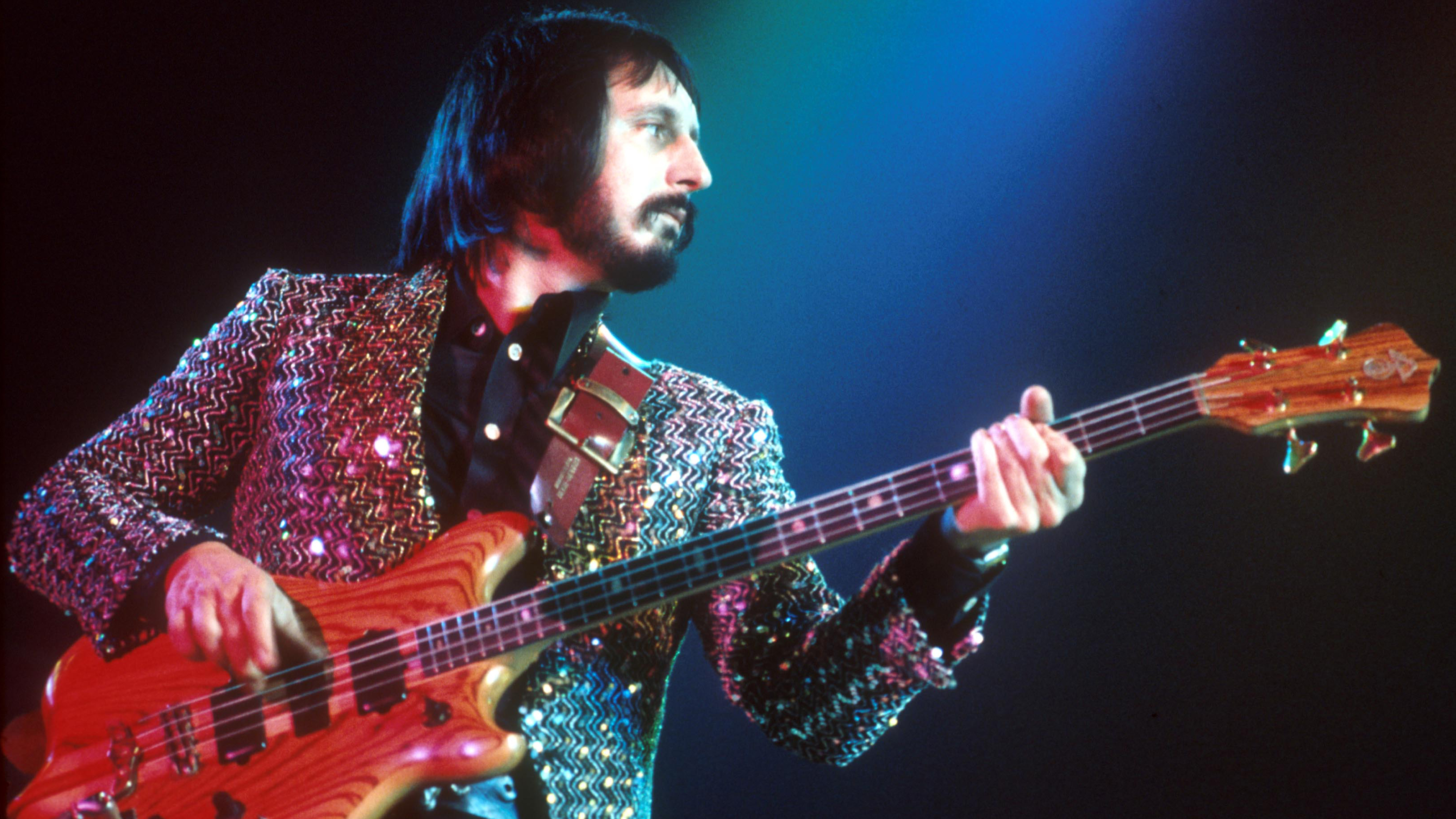
3. John Entwistle
Although The Ox was a picture of stillness amidst the whirlwind of Townshend, Moon and Daltrey's stage antics, in terms of fretboard gymnastics and sheer volume, his contribution to The Who was impossible to ignore.
If Jamerson and McCartney made the bass guitar an instrument of melody in pop music, Entwistle thrust it even further to the forefront and made it a weapon.
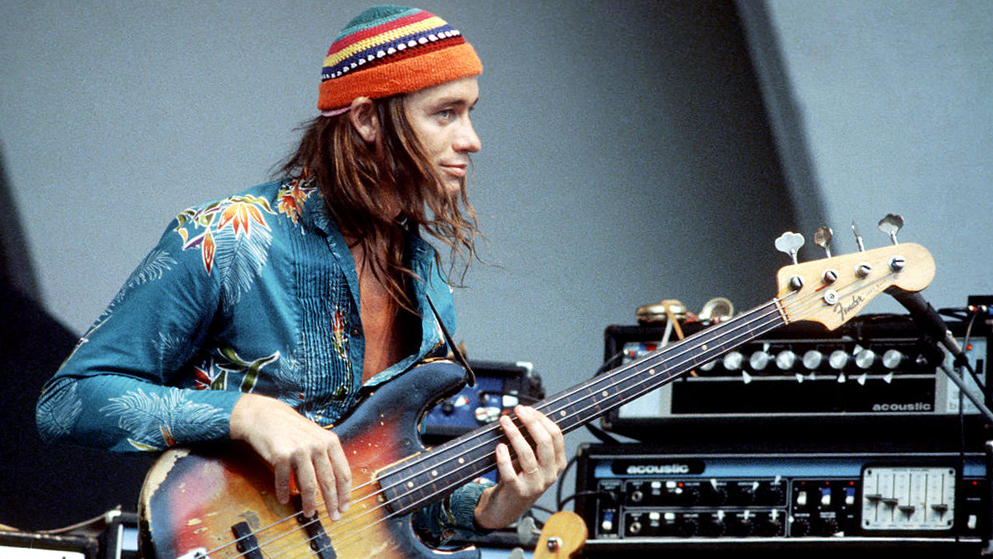
2. Jaco Pastorius
Few would disagree that Weather Report bassist and solo artist Jaco Pastorius was one of the most talented bassists ever to walk the earth.
His inspired use of harmonics was groundbreaking, but he sure knew how to make his early '60s Jazz basses growl, too.
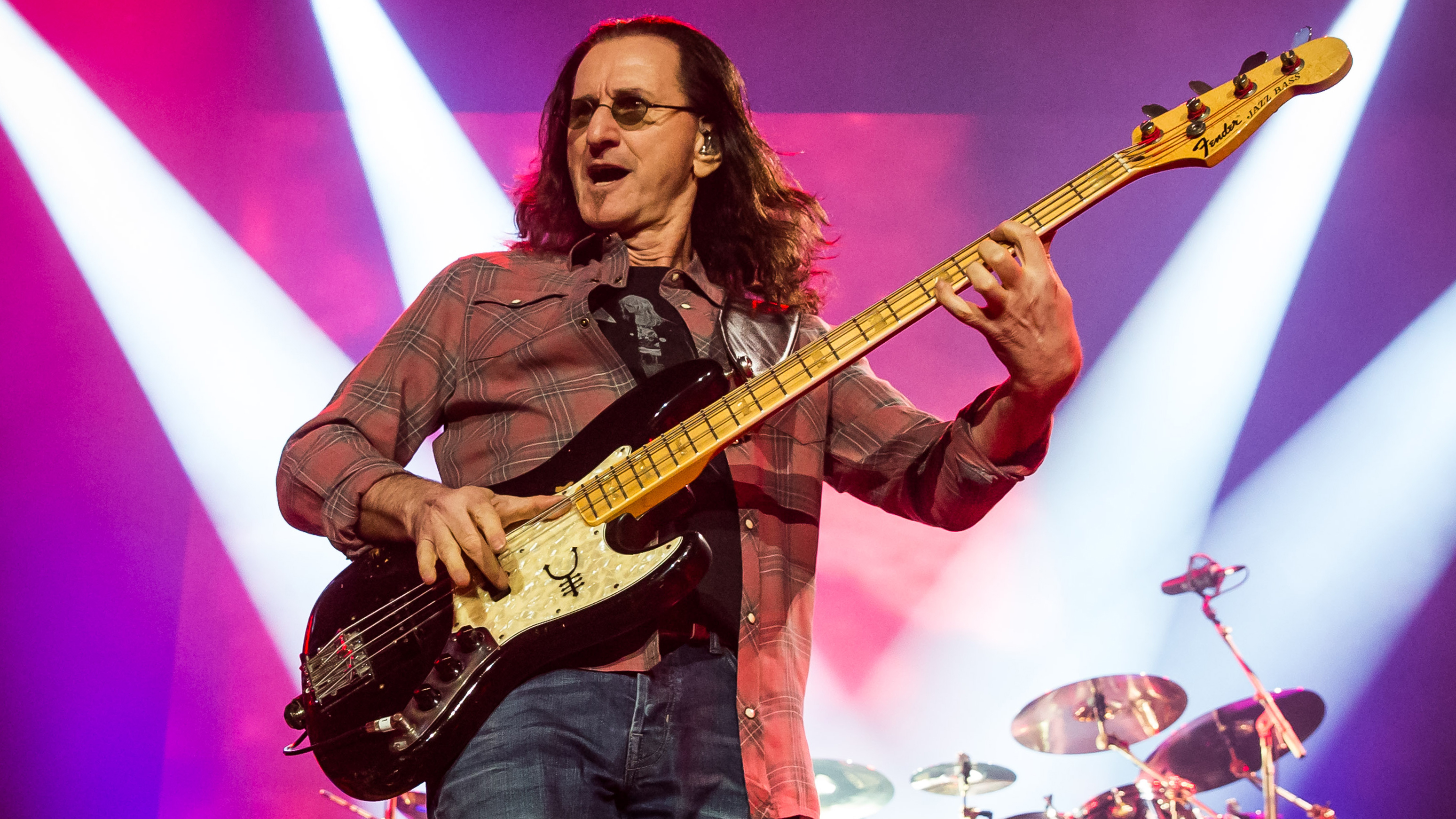
1. Geddy Lee
The Rush man has inspired thousands to pick up the bass guitar, and many of the other bassists in this rundown cite him as an influence.
A leading frontman, songwriter and a remarkable bass talent, it's no surprise he remains perennially popular with you guys.
Given the news that Canada’s premier prog exports have now retired from touring lends this result real poignancy. A worthy winner.

MusicRadar is the number one website for music-makers of all kinds, be they guitarists, drummers, keyboard players, DJs or producers...
- GEAR: We help musicians find the best gear with top-ranking gear round-ups and high-quality, authoritative reviews by a wide team of highly experienced experts.
- TIPS: We also provide tuition, from bite-sized tips to advanced work-outs and guidance from recognised musicians and stars.
- STARS: We talk to musicians and stars about their creative processes, and the nuts and bolts of their gear and technique. We give fans an insight into the craft of music-making that no other music website can.
“I was shocked. That was the exact sound that I had been chasing for years”: Nirvana tone sleuth Aaron Rash solves his epic tone mystery and finds the guitar that Kurt Cobain used for In Utero
“Such an emotive player... so cool. I’ve always been really impressed”: As he names his 5 favourite guitarists, who could Finneas be talking about?
“I was shocked. That was the exact sound that I had been chasing for years”: Nirvana tone sleuth Aaron Rash solves his epic tone mystery and finds the guitar that Kurt Cobain used for In Utero
“Such an emotive player... so cool. I’ve always been really impressed”: As he names his 5 favourite guitarists, who could Finneas be talking about?
![Epiphone goes high-end with its Inspired By Gibson Custom 2025 collection: [from left] the '63 Firebird in Polaris White is joined by a 1959 Les Paul Standard, a '64 SG Standard, a 1960 Les Paul Special in TV Yellow and a 1962 ES-335 reissue.](https://cdn.mos.cms.futurecdn.net/3N4uVp3ezzrrhjCbY8KNfn.jpg)
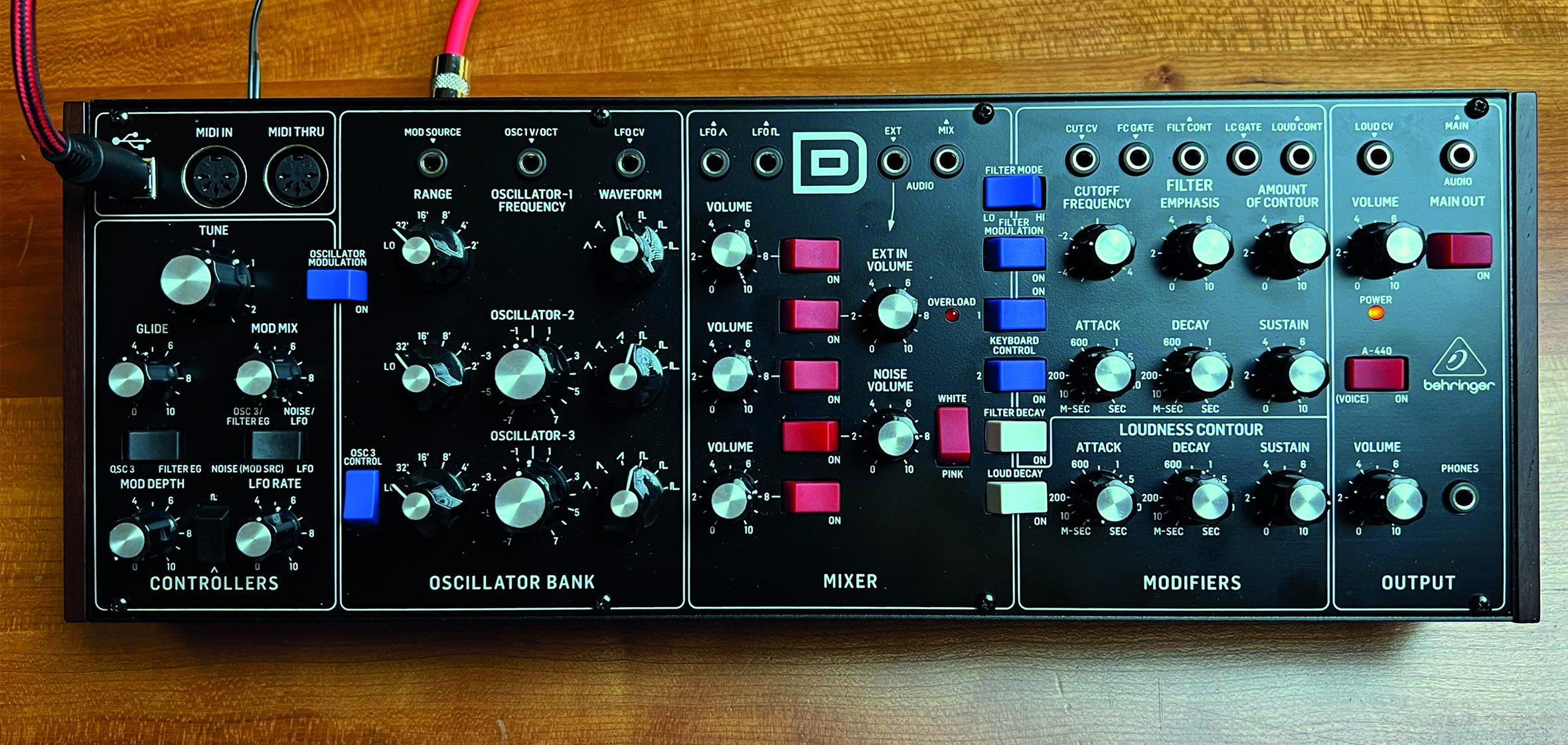
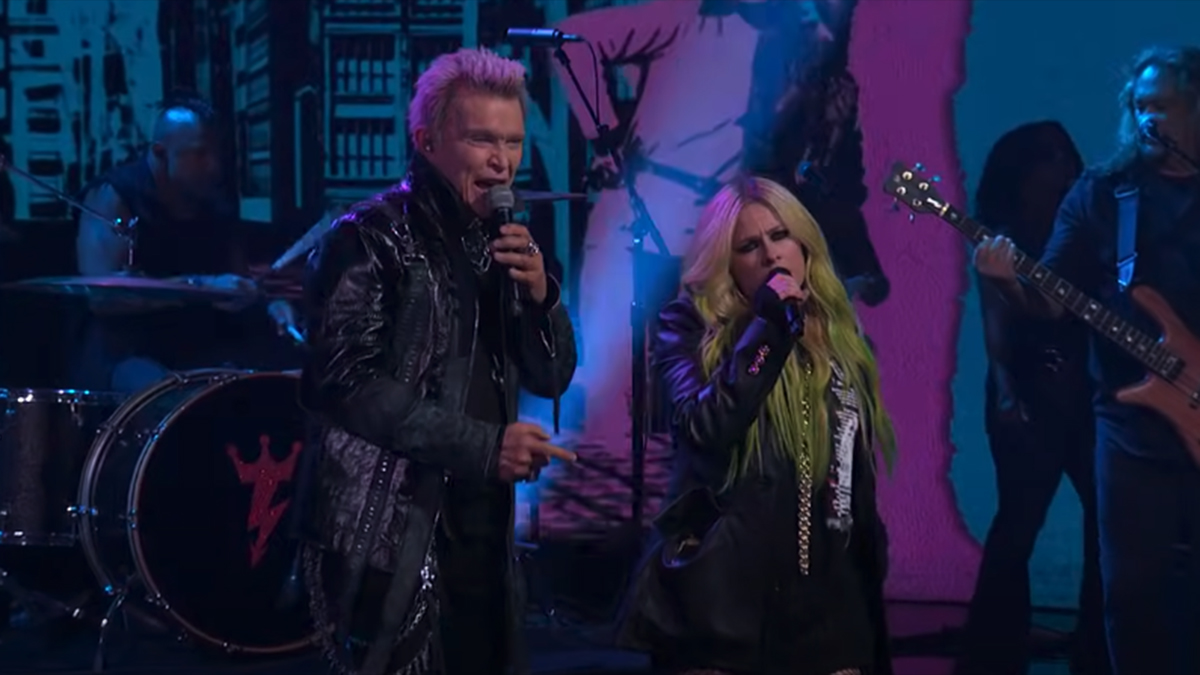
![YouTuber Aaron Rash [left] wears grey and an Adidas beanie and checked trousers as he poses with his Veleno-clone aluminium guitar. On the right, Kurt Cobain performs in 1993 with Nirvana at their MTV Live and Loud show in Seattle.](https://cdn.mos.cms.futurecdn.net/aqcaqZZK7FsRFWvoMPzMF9.jpg)
